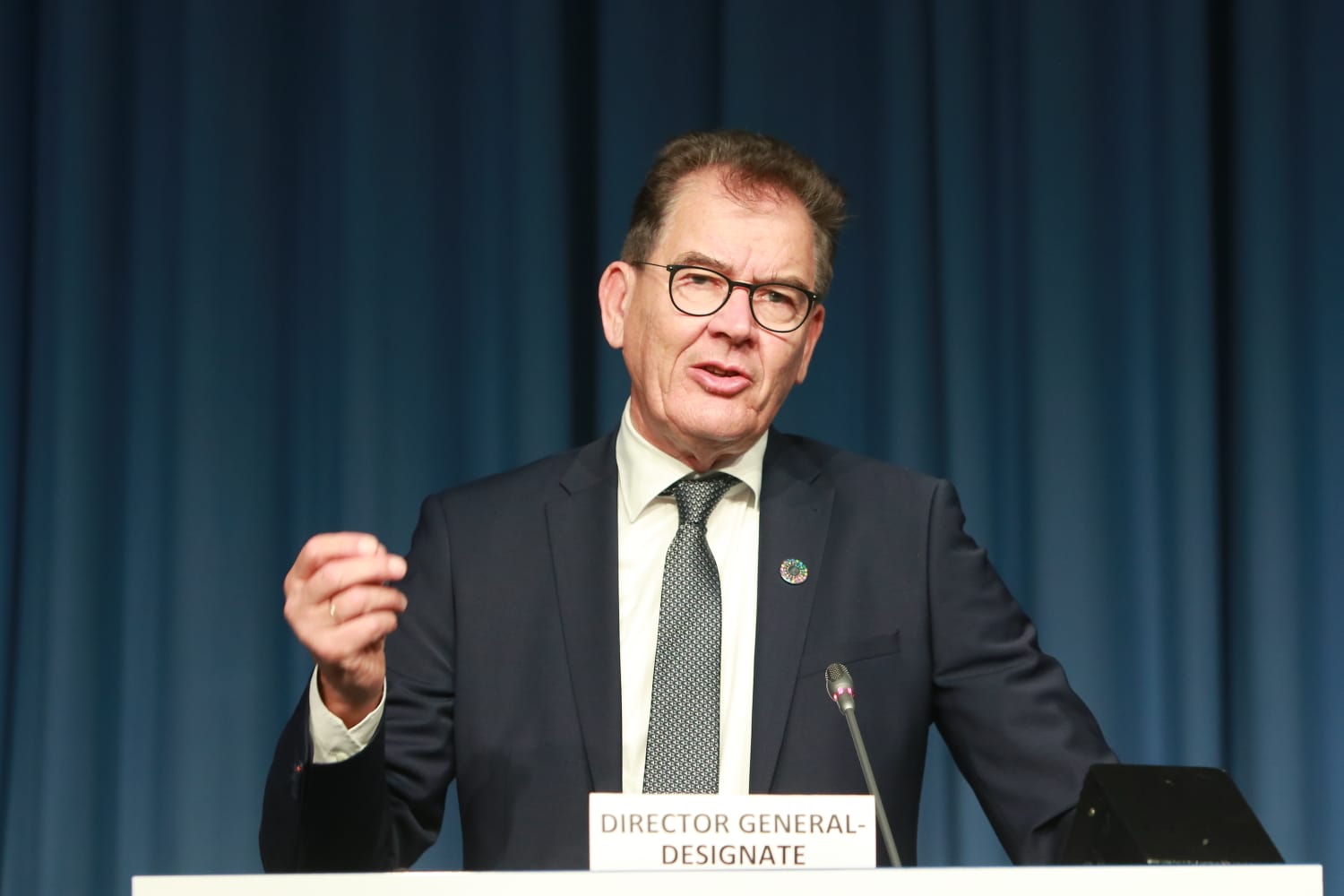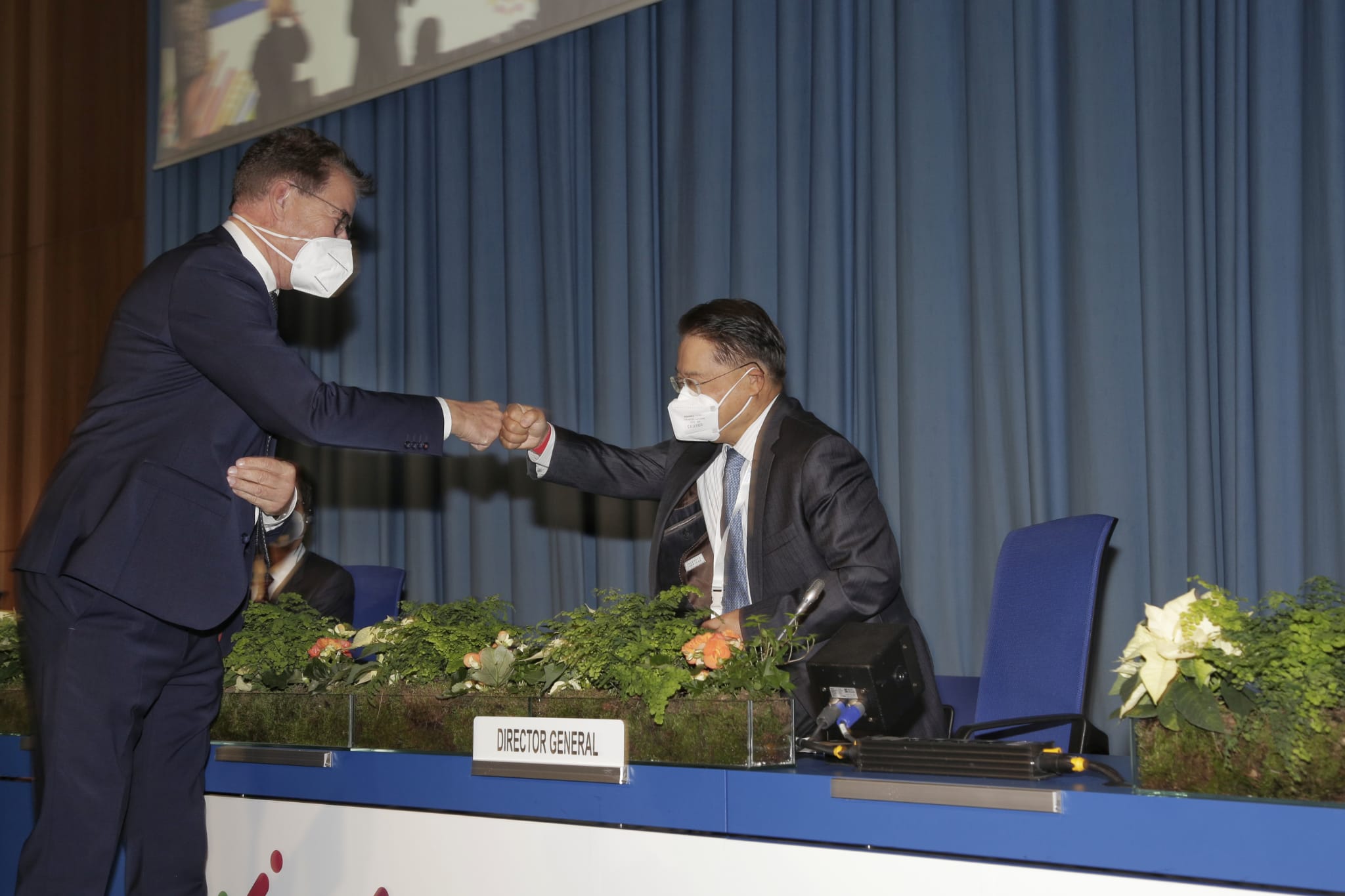Director General meets Jutta Urpilainen, European Commissioner for International Partnerships
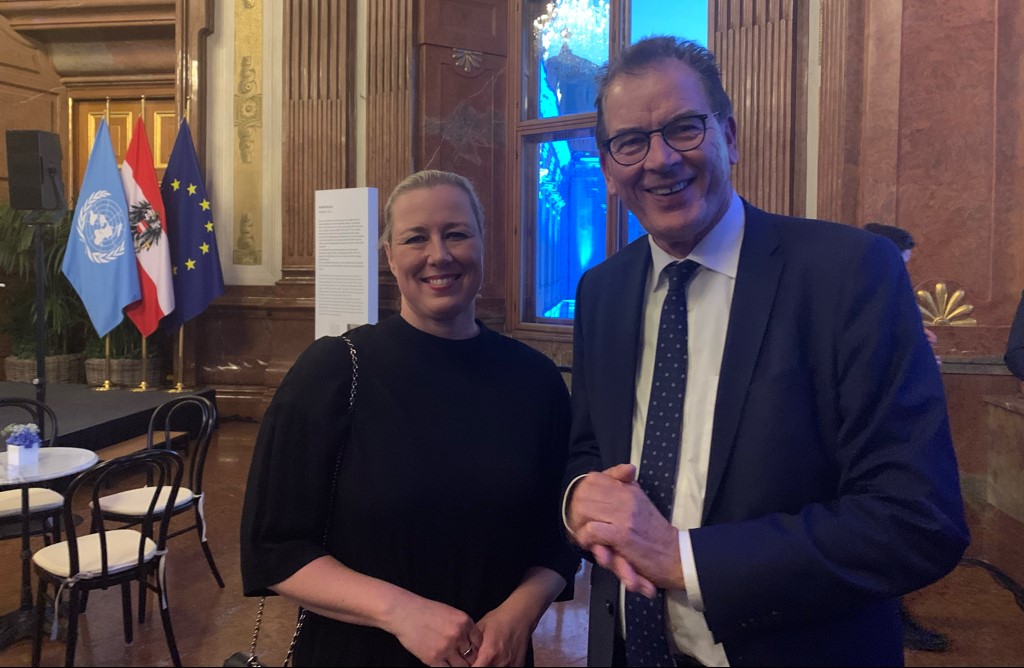
DG News

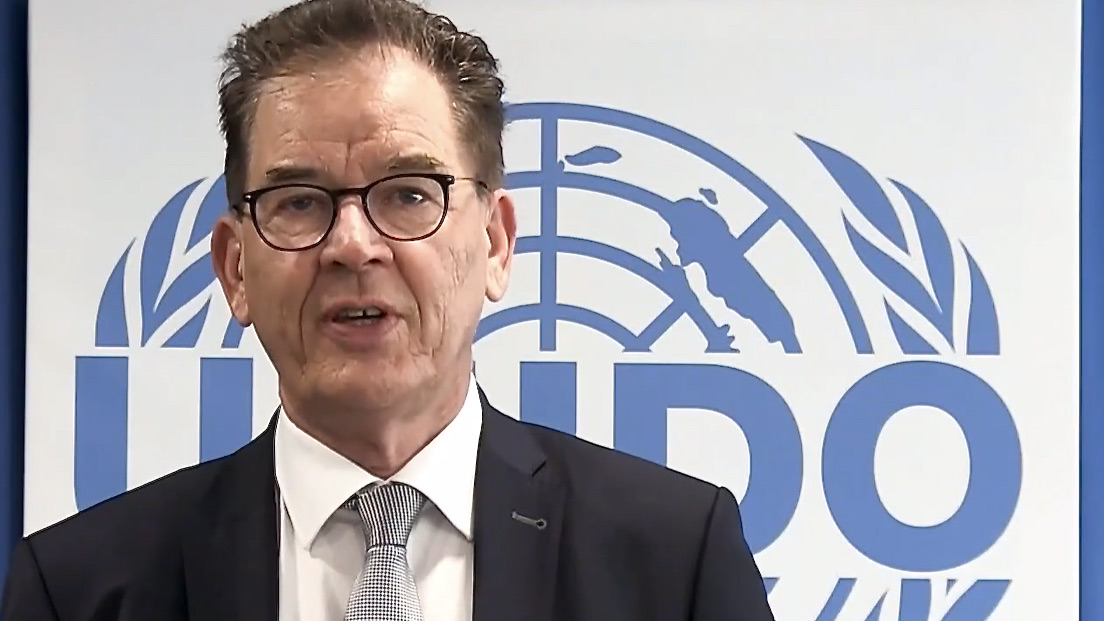
NEW YORK, 4 May 2022 – The United Nations Industrial Development Organization (UNIDO) is ready to work with partners to promote energy transition solutions, including the development of green hydrogen to decarbonize critical industries such as steel and cement. This was the message delivered by UNIDO Director General Gerd Müller during a virtual meeting convened by UN-Energy to launch outcomes of the UN High-level Dialogue on Energy: the UN-Energy Plan of Action towards 2025 and the Energy Compact Action Network.
The UN High-level Dialogue on Energy was a summit-level UN General Assembly event in September 2021. The Dialogue focused on ways to substantially advance the transition to clean, affordable energy for all by 2030 and net-zero emissions by 2050, resulting in a Global Roadmap for Accelerated SDG 7 Action containing recommendations on five thematic areas and milestones for 2025 and 2030.
Müller said, “Without energy, there is no development and no progress – no jobs, no industrialization, no growth. Almost a billion people today live without access to energy and electricity – the poorest of the poor, often women, are hit the hardest. But it is also the industrialized countries that are looking for sustainable solutions.”
He continued, “Together, we will champion international cooperation to develop new technologies, and ensure to leave nobody behind in the energy transition.”
The event also featured a presentation of Energy Compact coalitions and the activities of the Energy Compact Action Network. Cecilia Ugaz, Director of UNIDO’s Gender Office, told viewers, “We urgently need to increase our efforts to reduce greenhouse gas emissions, of which we know energy use accounts for over 75% and, importantly, we cannot afford to neglect the role of women in the sustainable energy transition….We need women policymakers, entrepreneurs, and women engineers to shape a climate-neutral future.”
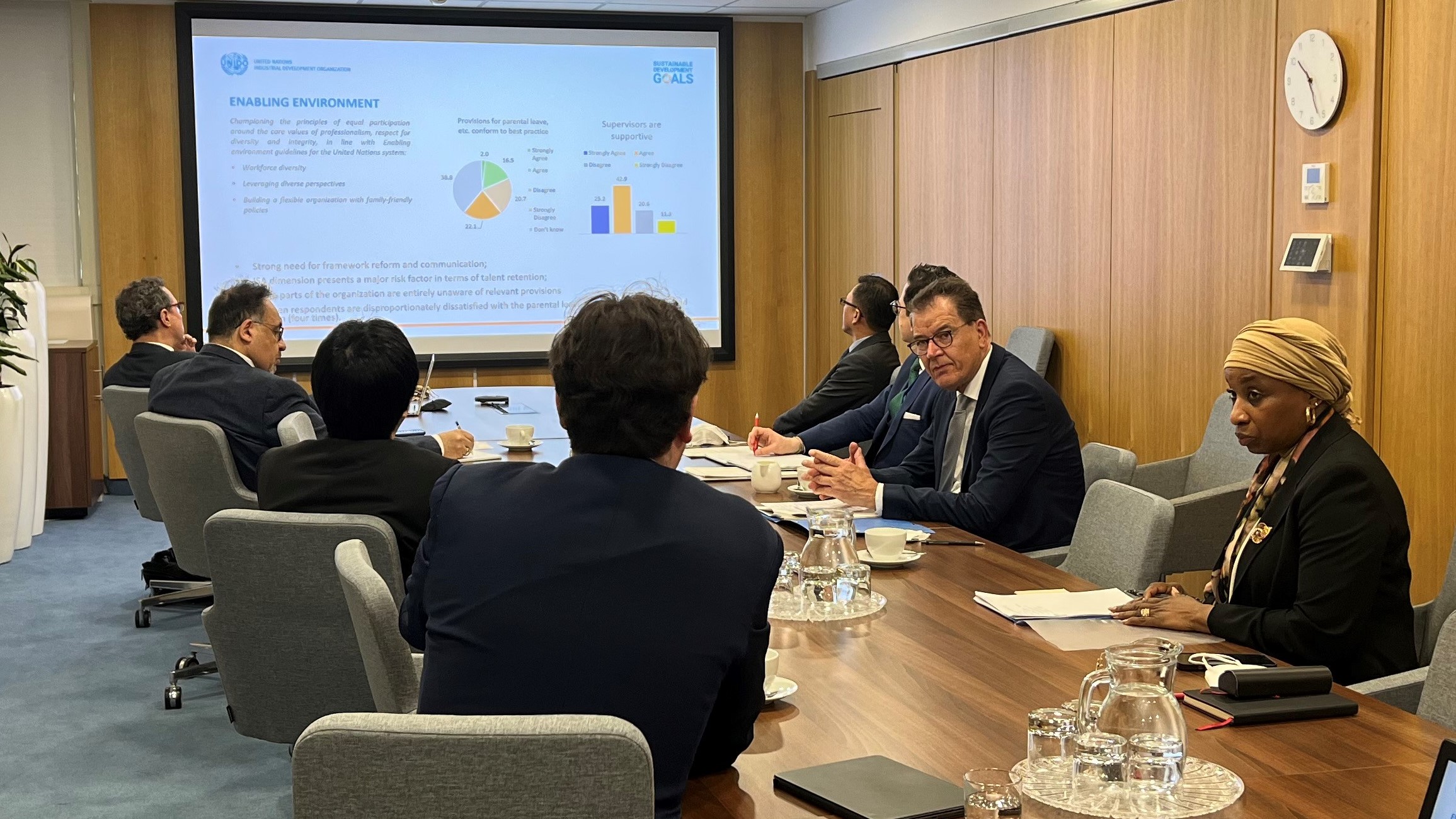
VIENNA, 12 April 2022 - UNIDO Director General Gerd Müller thanked the new Staff Council president, Mr. Steven-Geoffrey Eales, for presenting the results of the “Employment Satisfaction Survey 2022” to the Leadership Meeting.
“Together, we will discuss and implement concrete solutions to address issues such as family-friendly policies, staff performance assessment, and those of special concern to ISA-holders. Teamwork is a key ingredient for a successful UNIDO”, said the Director General.
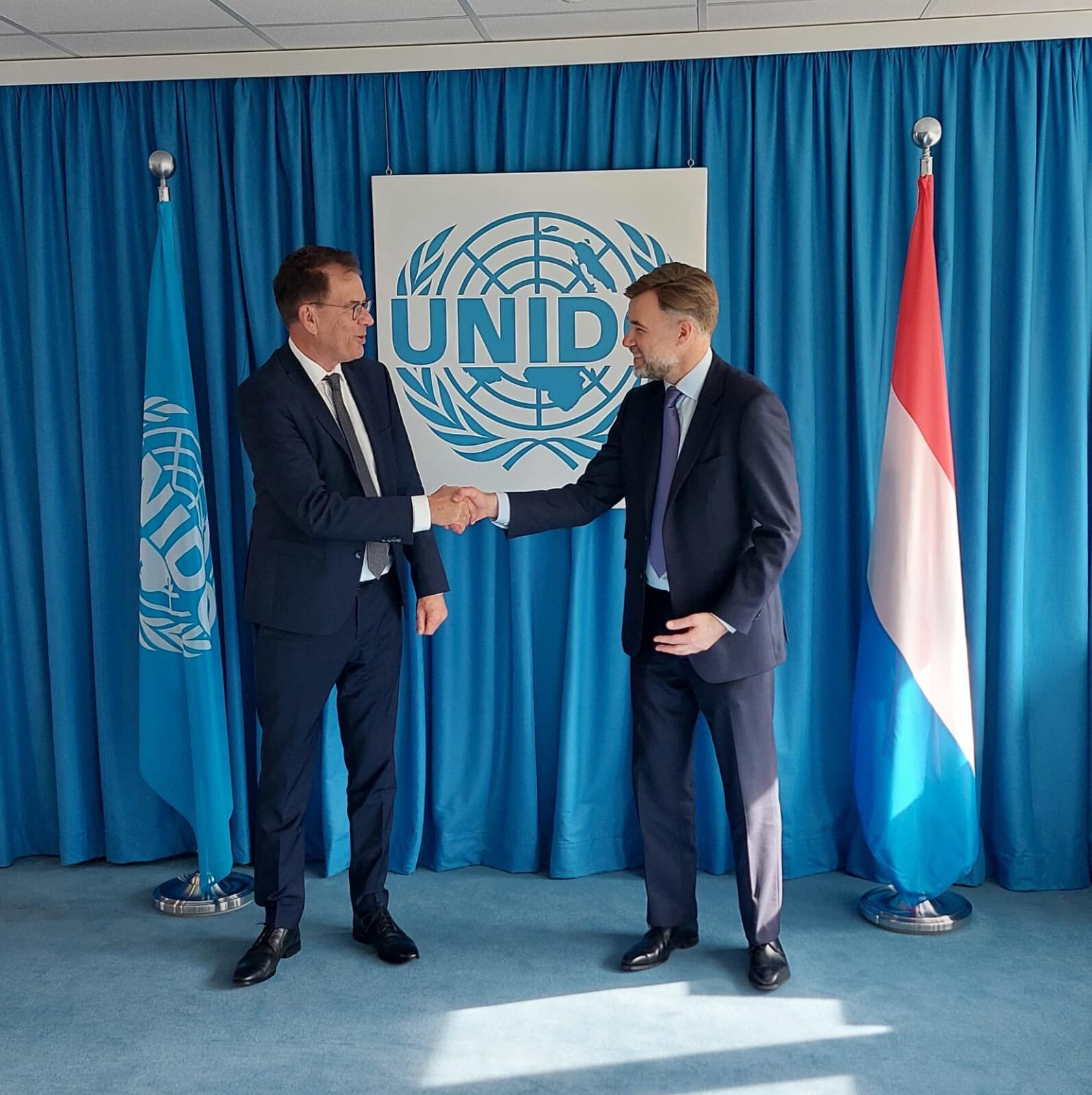
VIENNA, 6 April 2022 - Gerd Müller, UNIDO Director General, has held discussions with Franz Fayot, Luxembourg's Minister of the Economy, Development Cooperation and Humanitarian Affairs. The two discussed their common goal of promoting sustainable growth to eradicate poverty, and Luxembourg's potential to support UNIDO in the areas of innovation, digitalization and green industrialization.
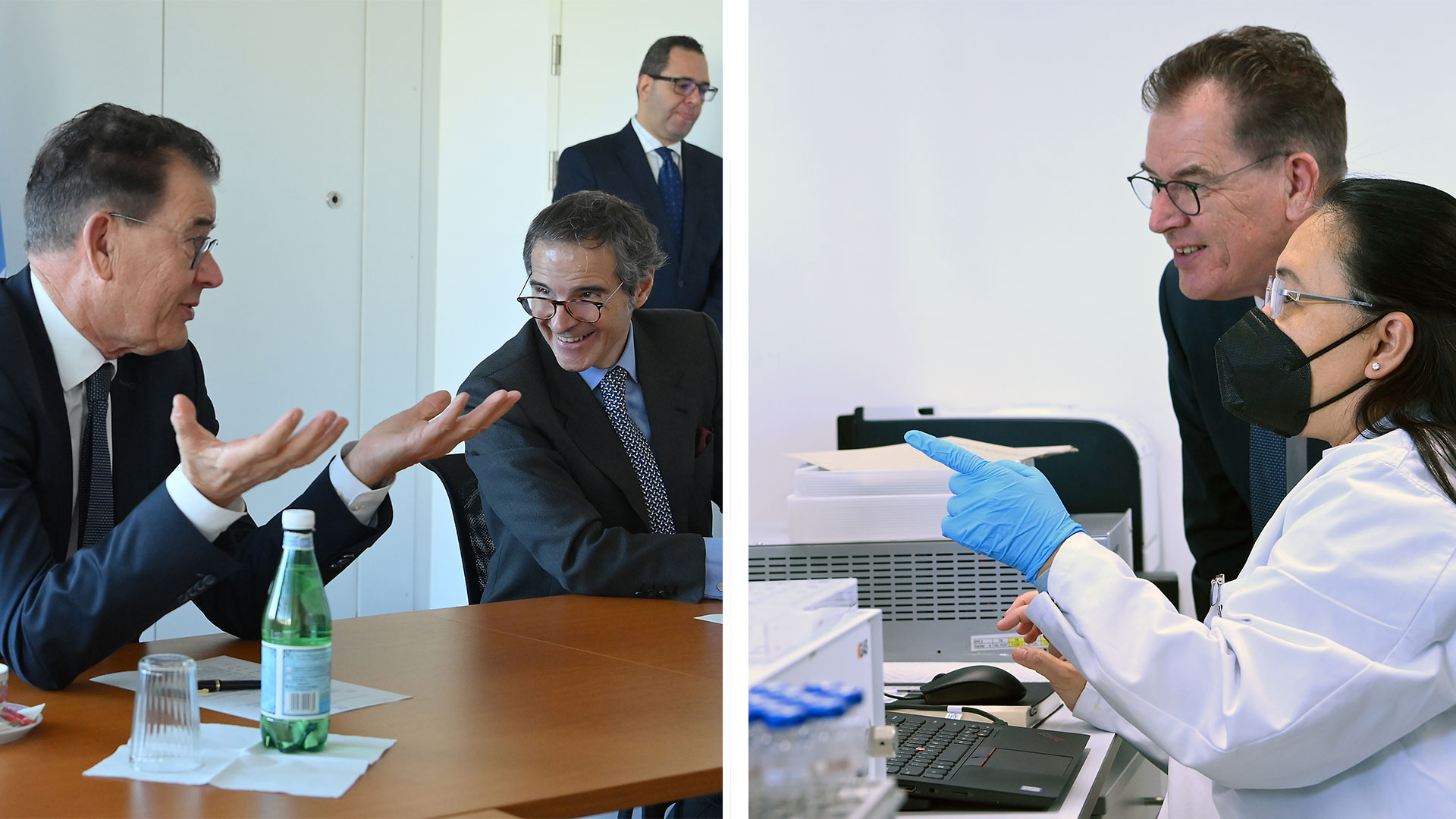
VIENNA, 3 March 2022 - How nuclear science helps to control pests, can add to food safety, and allows us to develop new crops - these were some of the topics covered during last week's visit to the International Atomic Energy Agency (IAEA) laboratories in Seibersdorf by Gerd Müller, the new Director General of the United Nations Industrial Development Organization (UNIDO).
Over the last 60 years, the IAEA’s eight nuclear applications laboratories in Seibersdorf have trained thousands of scientists in nuclear techniques that can be applied in addressing environmental, food security and human health challenges.
During the visit, Müller and IAEA Director General, Rafael Mariano Grossi, agreed on strengthening and extending their cooperation. Special attention was paid to the areas of food security, pest control and environmental protection, but also to global health, including research on zoonotic diseases.
In his inauguration speech in December 2021, Müller stated that he wants UNIDO to become a global platform for technology transfer, know-how and digitalization, which can foster green skills and technologies, expand the use of renewable energies and open up fair access to global markets and value chains. During the visit to the IAEA laboratories, he said, “We need to collaborate more closely with other UN agencies to share the innovations that are developed here in Seibersdorf, for example in the biotechnology laboratories of the Joint Food and Agriculture Organization/IAEA Centre of Nuclear Techniques in Food and Agriculture. Through innovation and technology transfer, we cannot only solve the hunger problem, but also the energy and the climate problem.”
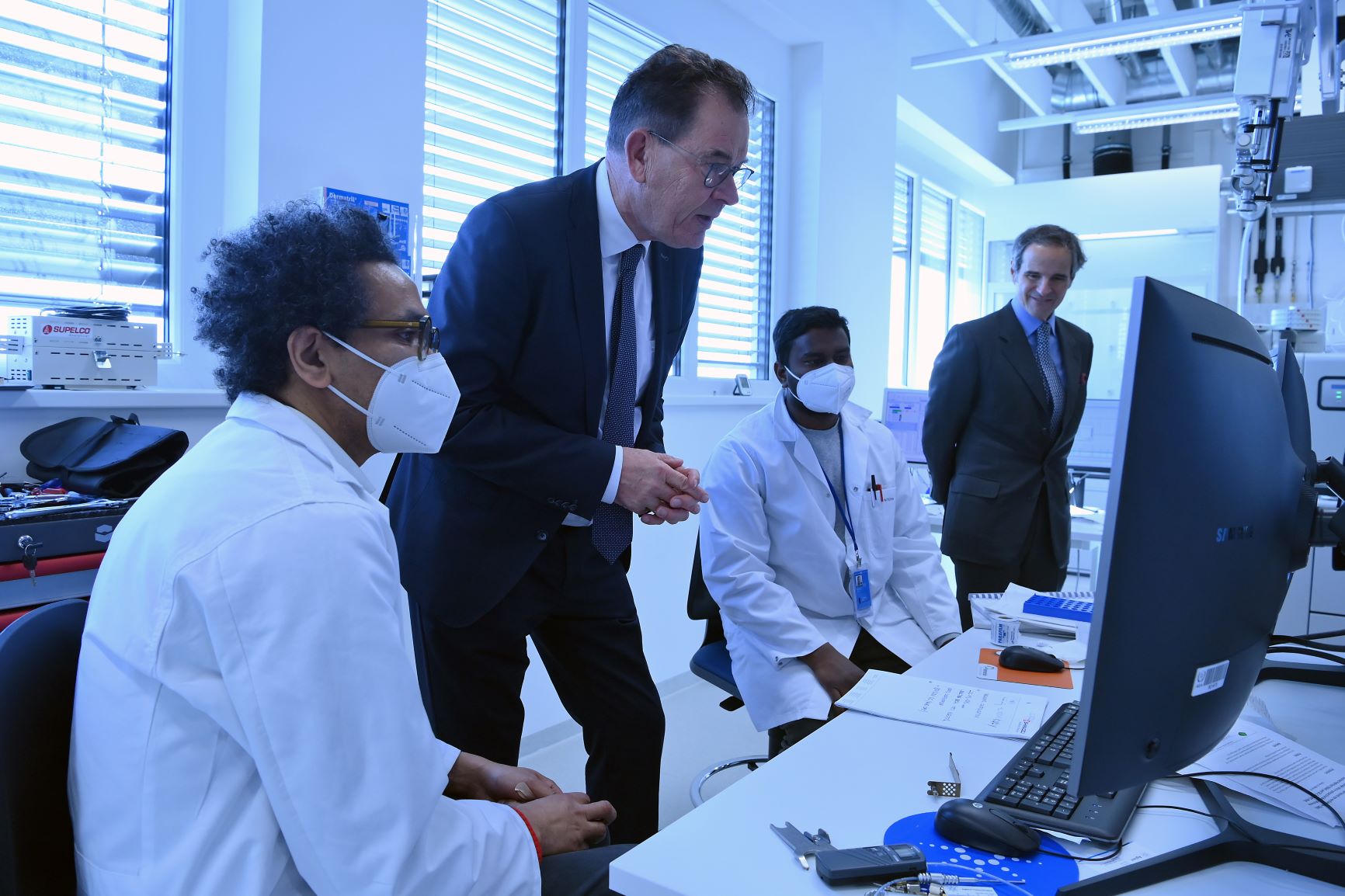
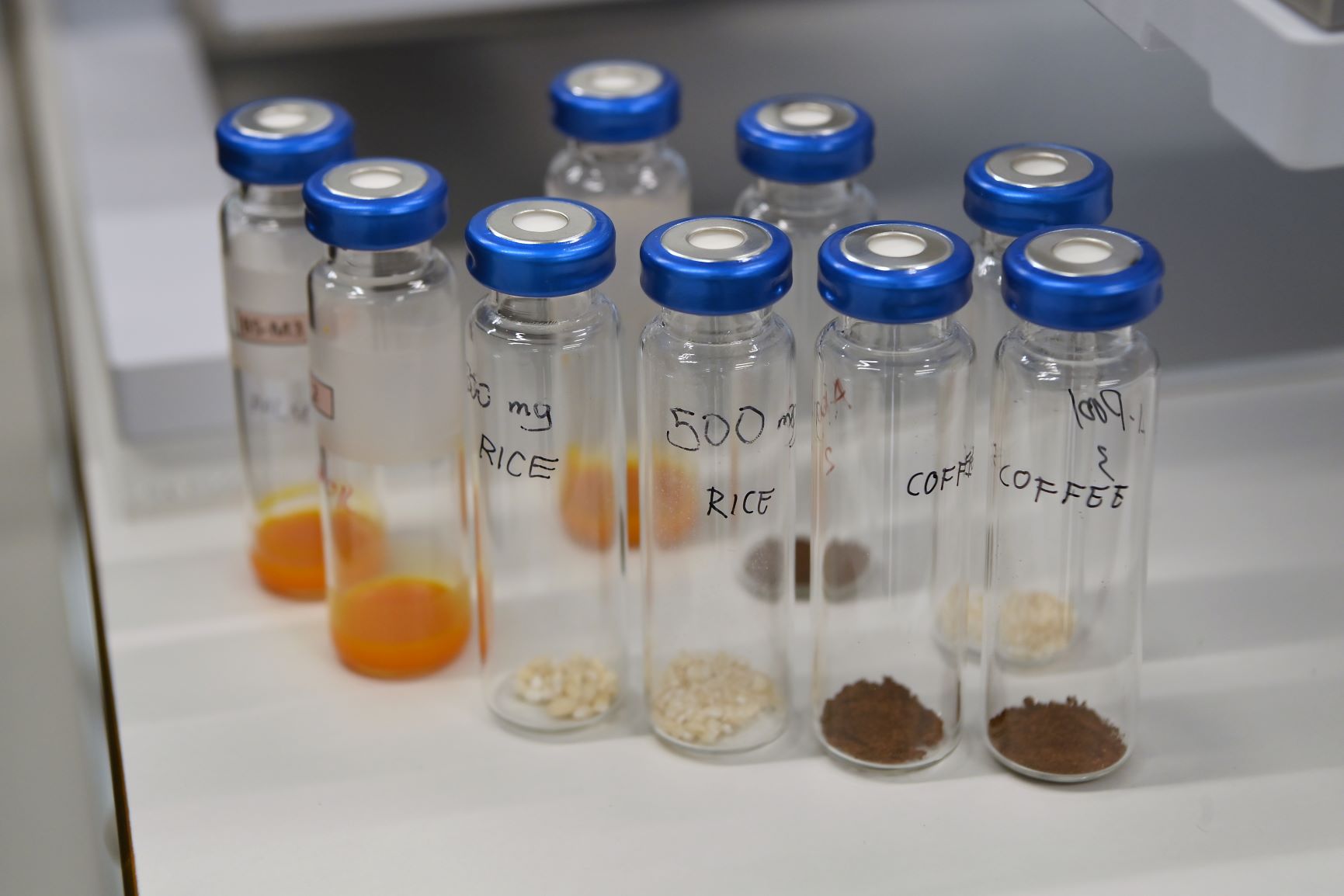
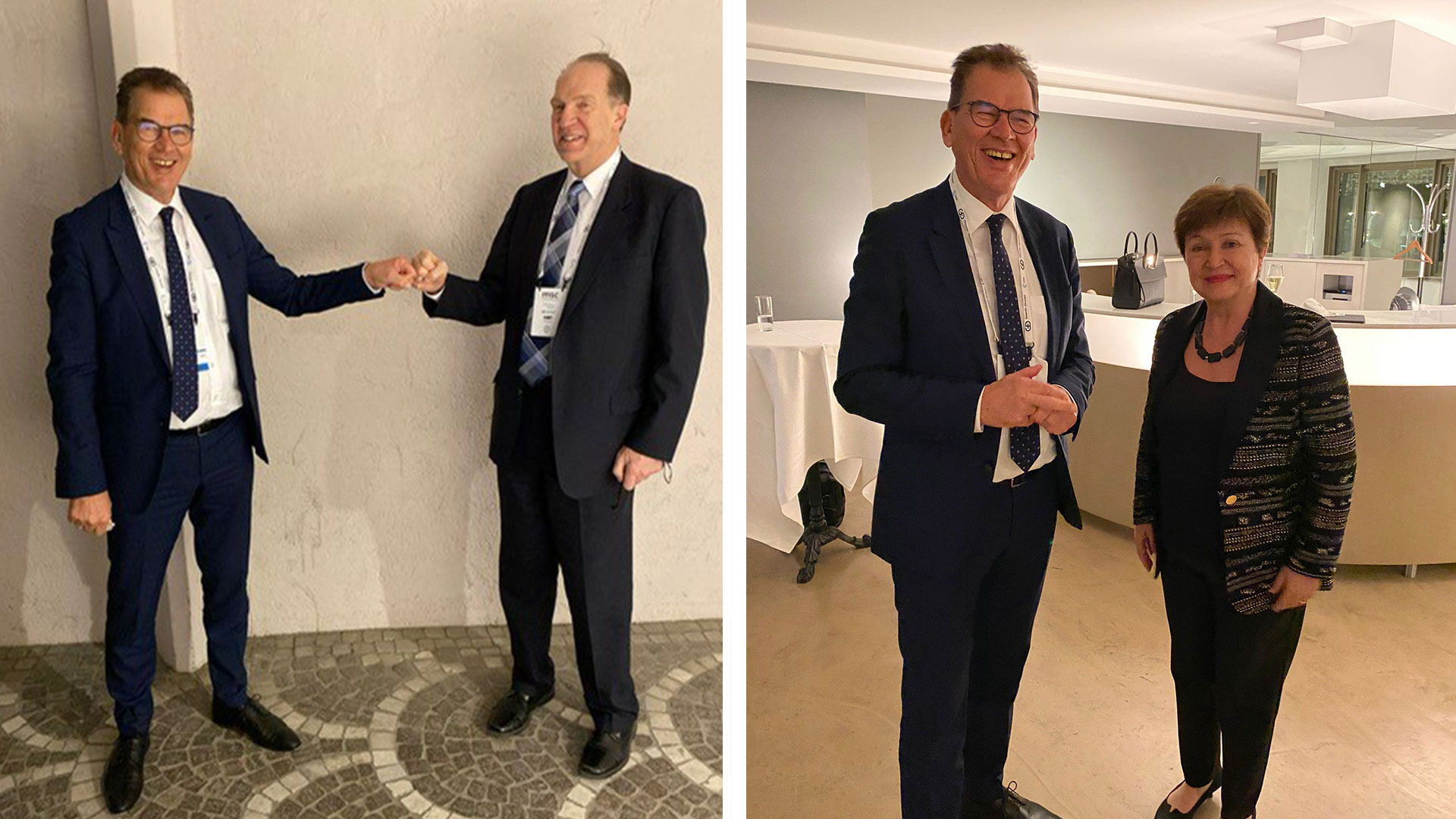
MUNICH, 19 February 2022 - During the Munich Security Conference, 17-19 February, the new Director General of UNIDO, Gerd Müller, met with David R. Malpass, President of the World Bank Group, and with Kristalina Georgieva, Chair and Managing Director of the International Monetary Fund (IMF). UNIDO and both institutions look back at a long and successful working relationship.
The Director General and the two representatives discussed options on how to foster cooperation between UNIDO and the World Bank and the IMF. This should provide developing countries with the support, knowledge and financial resources needed for the implementation of the 2030 Agenda for Sustainable Development.
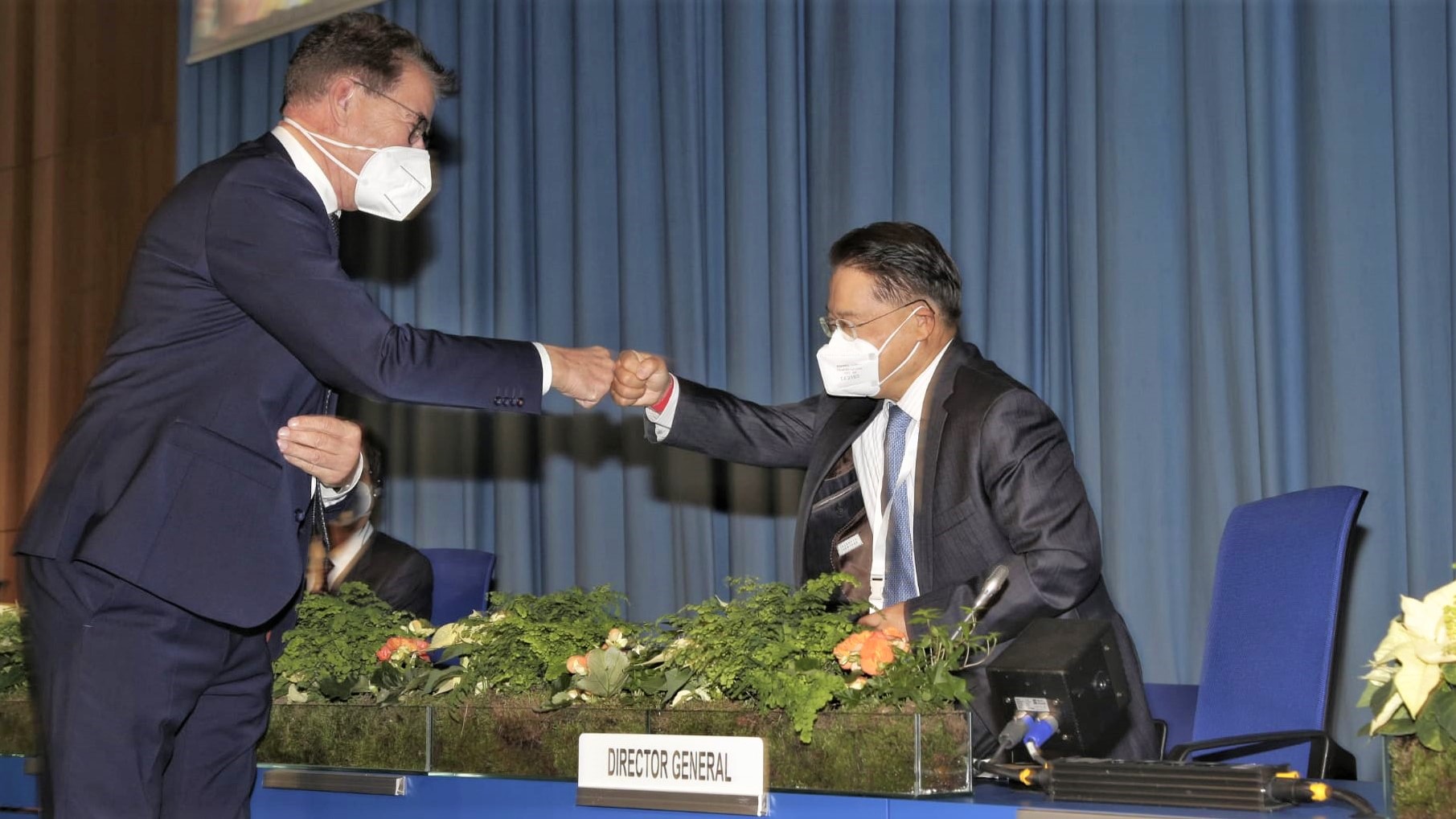
VIENNA, 3 December 2021 – The 19th session of the United Nations Industrial Development Organization (UNIDO) General Conference , which concluded today, has taken place at a critical juncture, following the UN Secretary-General’s call for a “Decade of Action” and as countries all over the world strive to recover from the socioeconomic impact of the coronavirus pandemic.
The event was an opportunity to show how UNIDO is capitalizing on its rich expertise and bringing a stronger focus to the practical aspects of its inclusive and sustainable industrial development mandate to help countries get back on track to achieve the Sustainable Development Goals.
To contain the spread of COVID-19, the General Conference was a semi-virtual affair. Many delegates from Member States, other stakeholders and interested parties across the globe joined online. A virtual exhibition showcasing UNDO’s work was created in place of the traditional physical one but, for in-person participants,there was one physical exhibition stand, Building a Better Future, and a photo-led exhibition showing UNIDO beneficiaries. The virtual exhibition highlighted some key UNIDO topics such as climate change, sectoral and agribusiness development, the fourth industrial revolution and industrial policy, as well as UNIDO partnerships.
During the official opening session, the Director General LI Yong and representatives of Member States congratulated UNIDO on the 55th anniversary of its establishment.
Li remarked, “Reflecting on past years and looking at the current situation, I am pleased to be handing over an agile and innovative organization that is on a solid footing.”
After eight years at the helm of UNIDO, and in accordance with the two-term limit of UNIDO’s Constitution, Li stood down as Director General during the General Conference. Gerd Müller, formerly Germany’s Minister for Economic Cooperation and Development, was confirmed as the new Director General of UNIDO for a period of four years.
Addressing delegates, Müller said, “I want to thank you for your great support and for electing me as the new Director General of UNIDO.”
In his acceptance speech, Müller stated, “If we want to solve the global challenges of our time, we need global solidarity and a partnership-based cooperation between industrialized and developing countries.”
The overarching theme of the five days of meetings, debates and discussions was ‘Building A Better Future’.
The Eighth Inclusive and Sustainable Industrial Development Forum featured a keynote address by Mariana Mazzucato, Professor in the Economics of Innovation and Public Value at University College London, and an adviser to policymakers across the world.
“We need governments to take a leading role in building, coordinating and governing horizontal, cross-sectoral partnerships,” said Mazzucato, continuing, “Whether it is climate change or the digital divide, none of these areas can be solved in isolation. We need every sector to be part of the solution when we think of the future of industrial policy and recovery.”
Partnerships were also the theme of the Donors Meeting where representatives of Member States and development partners discussed scaling up impact through innovation.
The General Conference saw the official launch of UNIDO’s flagship publication, the Industrial Development Report (IDR). The Future of Industrialization in a Post-Pandemic World seeks to explain why some countries are weathering the COVID-19 crisis better than others, and explores what lessons can be gleaned from these countries for the future of industrialization.
At the IDR 2022 launch, Fu Xiaolan from Oxford University's Technology and Management Centre for Development, said, “This new digital revolution represents a window of opportunity for countries in the global South,” adding, “UNIDO can lead the acceleration of industrial digital transformation in developing countries, in collaboration with other agencies and task forces.”
Jeffrey Sachs, President of the UN Sustainable Development Solutions Network, said countries need to accelerate the shift to a green industrial sector and to transform their energy systems. “It is necessary to overcome the challenges to move from fossil fuels to renewable sources and zero-carbon power generation,” he added, “but to do so developing countries need more access to adequate financing and technologies.”
With the increasing recognition of the importance of industrial policies as the driver of economic transformation, a side event focused on prospects for establishing a global industrial policy forum for multilateral policy learning and knowledge sharing.
‘New forms of investments as drivers for a sustained post-COVID-19 recovery’ was the theme of another side event, which promoted dialogue on how developing countries can better harness quality foreign direct investment and impact investing.
The Fourth Industrial Revolution has a key role to play in enabling sustainable and inclusive industrial development. Together with its Member States, UNIDO is developing a strategic framework to mainstream a digital, gender-responsive and sustainable transformation, and to scale up digital capabilities. These issues were the subject of a side event titled, “The post-pandemic world will be digital: implications of the Fourth Industrial Revolution for developing countries’.
As the global community strives to build back better industries, economies and societies post-COVID-19, investing in women is both the right thing and the smart thing to do. Gender equality and the empowerment of women is a priority at UNIDO, and another event featured best practices and results from UNIDO activities that may serve as an inspiration for future approaches. The examples showcased were based on the awardees of the second UNIDO Gender Equality Mobilization Award.
The year 2021 was declared the International Year of Creative Economy for Sustainable Development by the UN General Assembly, and another side event showed how UNIDO has tackled the challenges of supporting the creative economy.
The 19th UNIDO General Conference took place just a few weeks after the meeting of the 26th Conference of Parties (COP26). The “Accelerating climate impact for Member States through Inclusive and Sustainable Industrial Development” event brought together prominent external experts and policymakers from Member States to discuss the climate change landscape emerging from COP26.
The General Conference brought together stakeholders from governments, academia, the private sector and knowledge-based institutions, coming together to discuss the way forward to build a better future for everyone!
Photos of the 19th General Conference are available here.
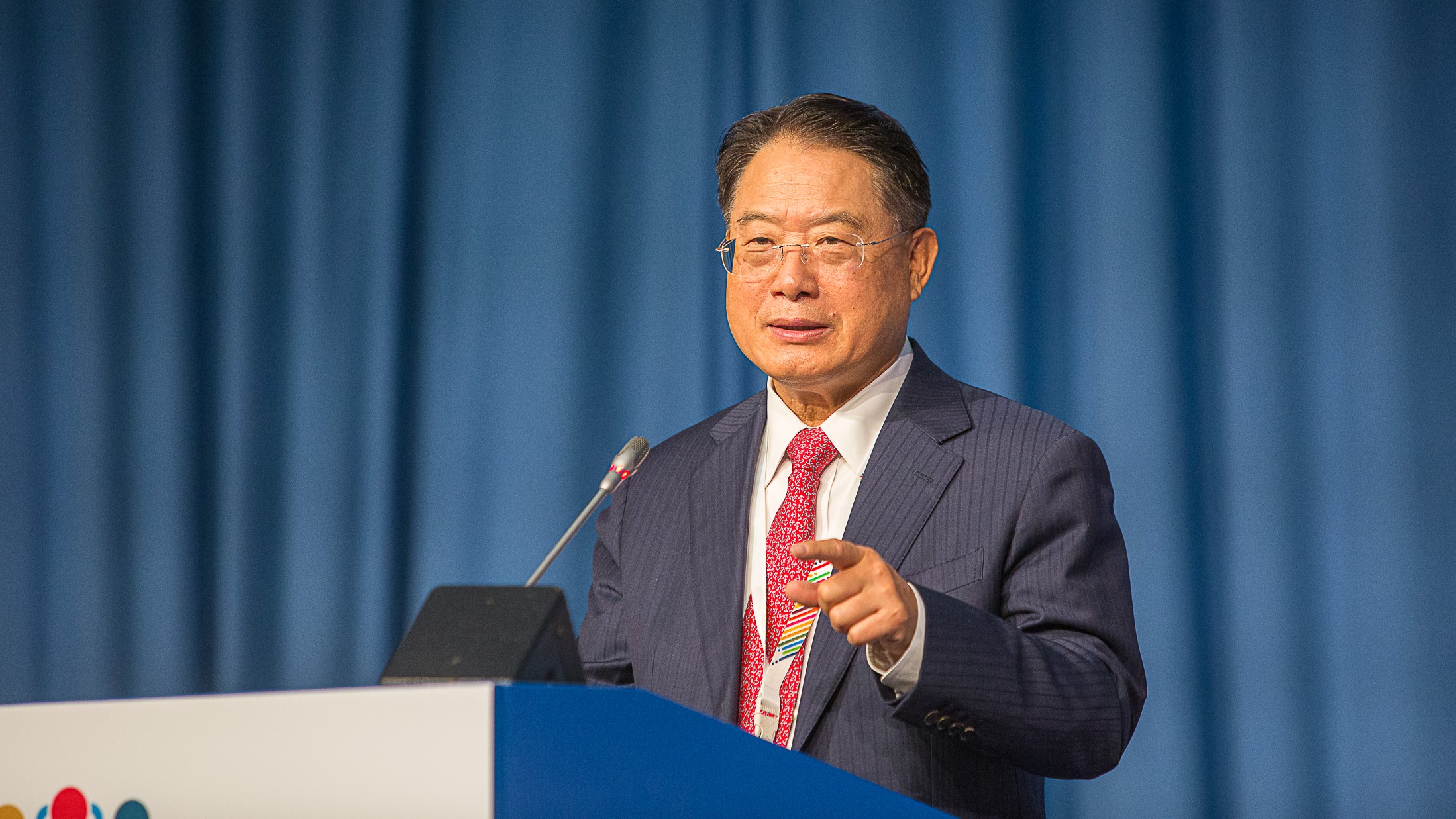
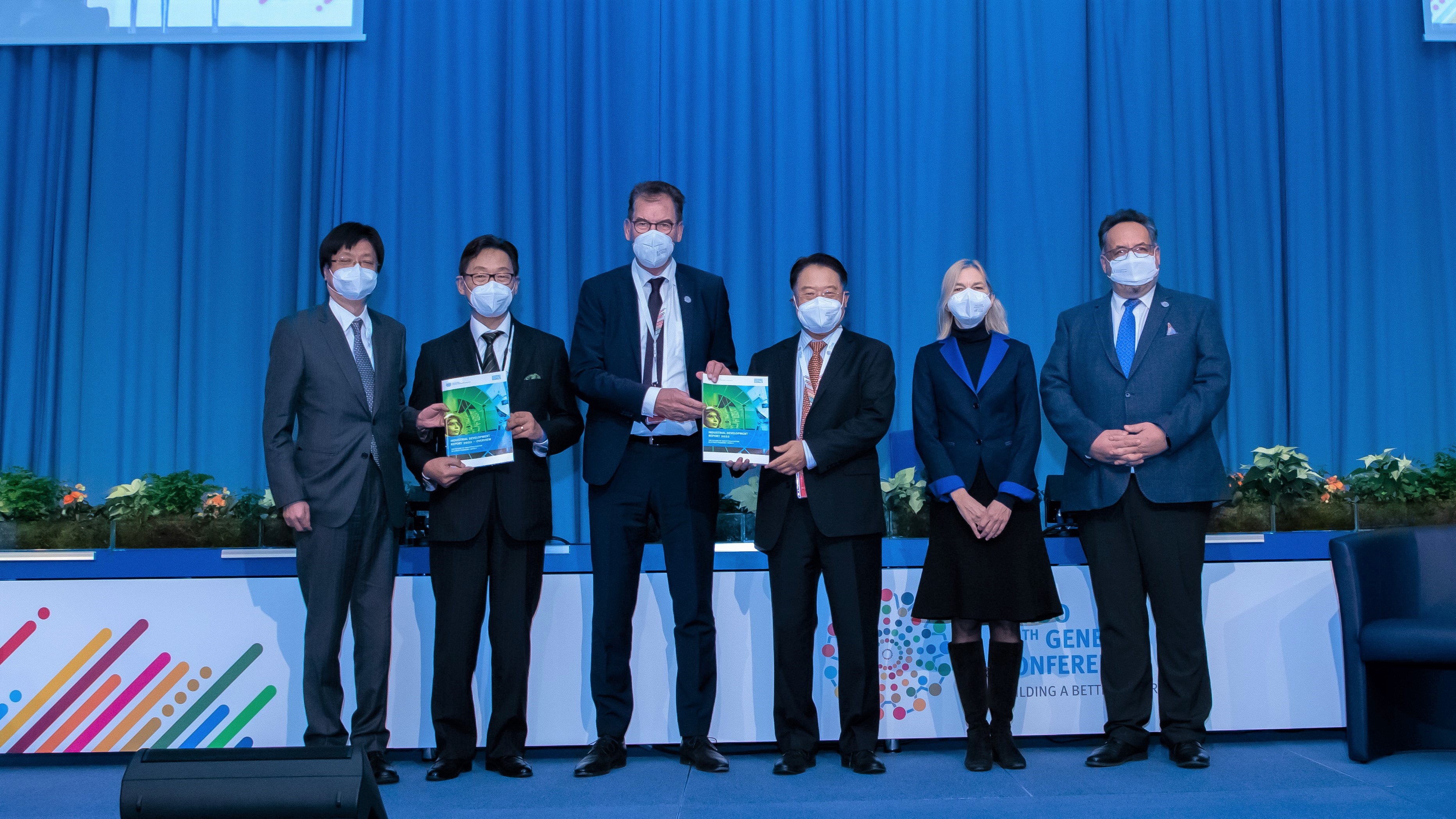
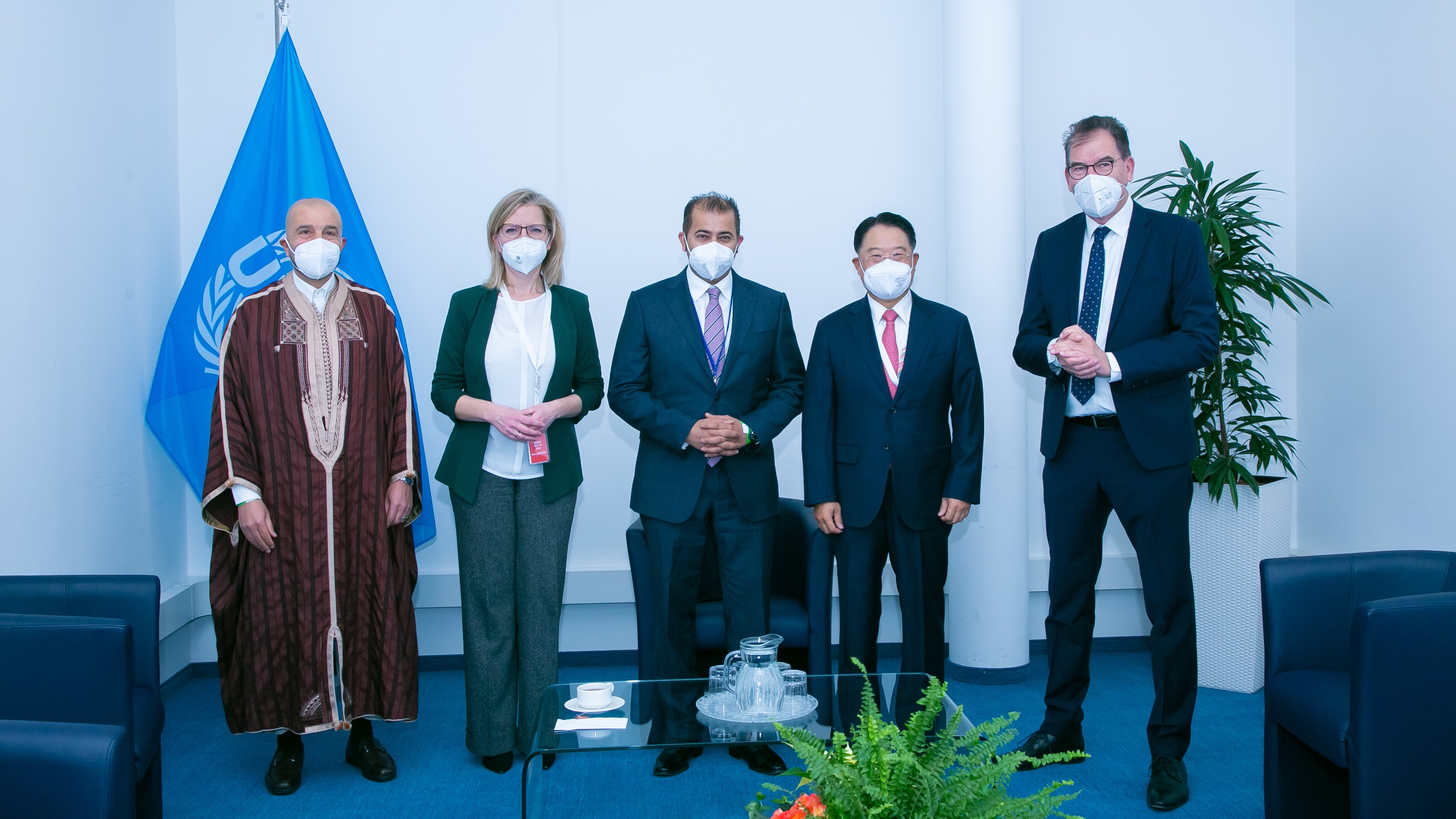
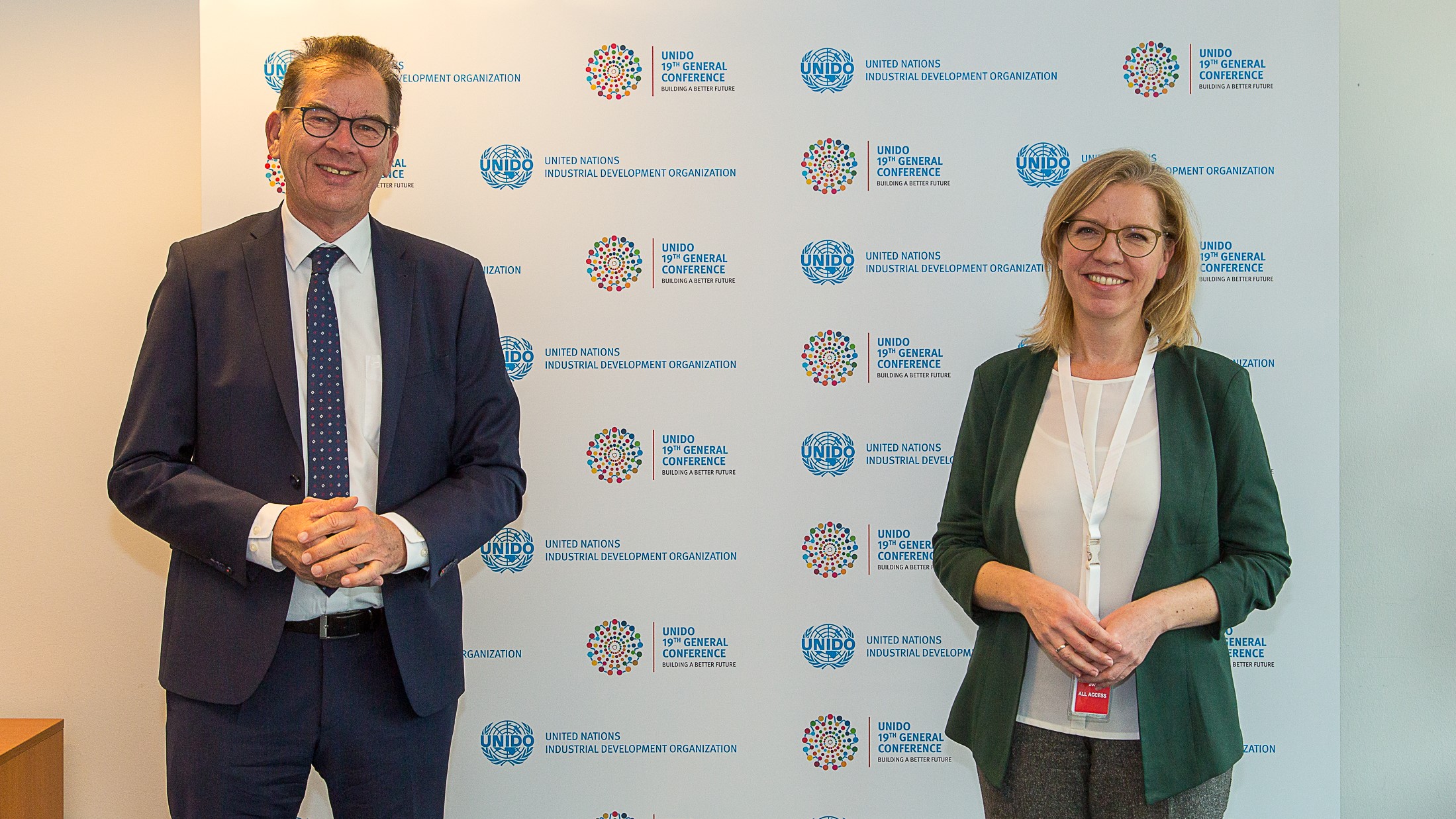
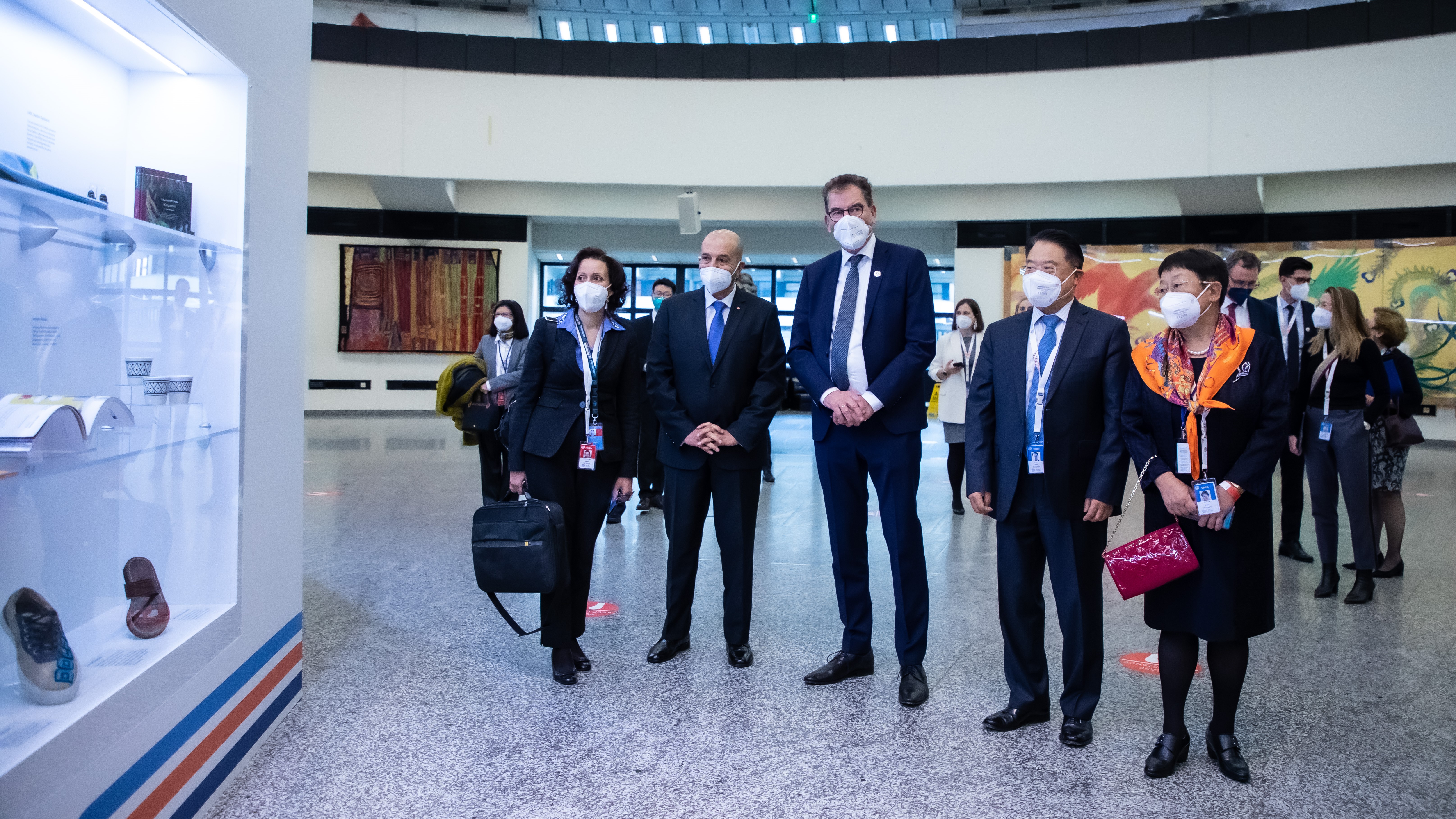
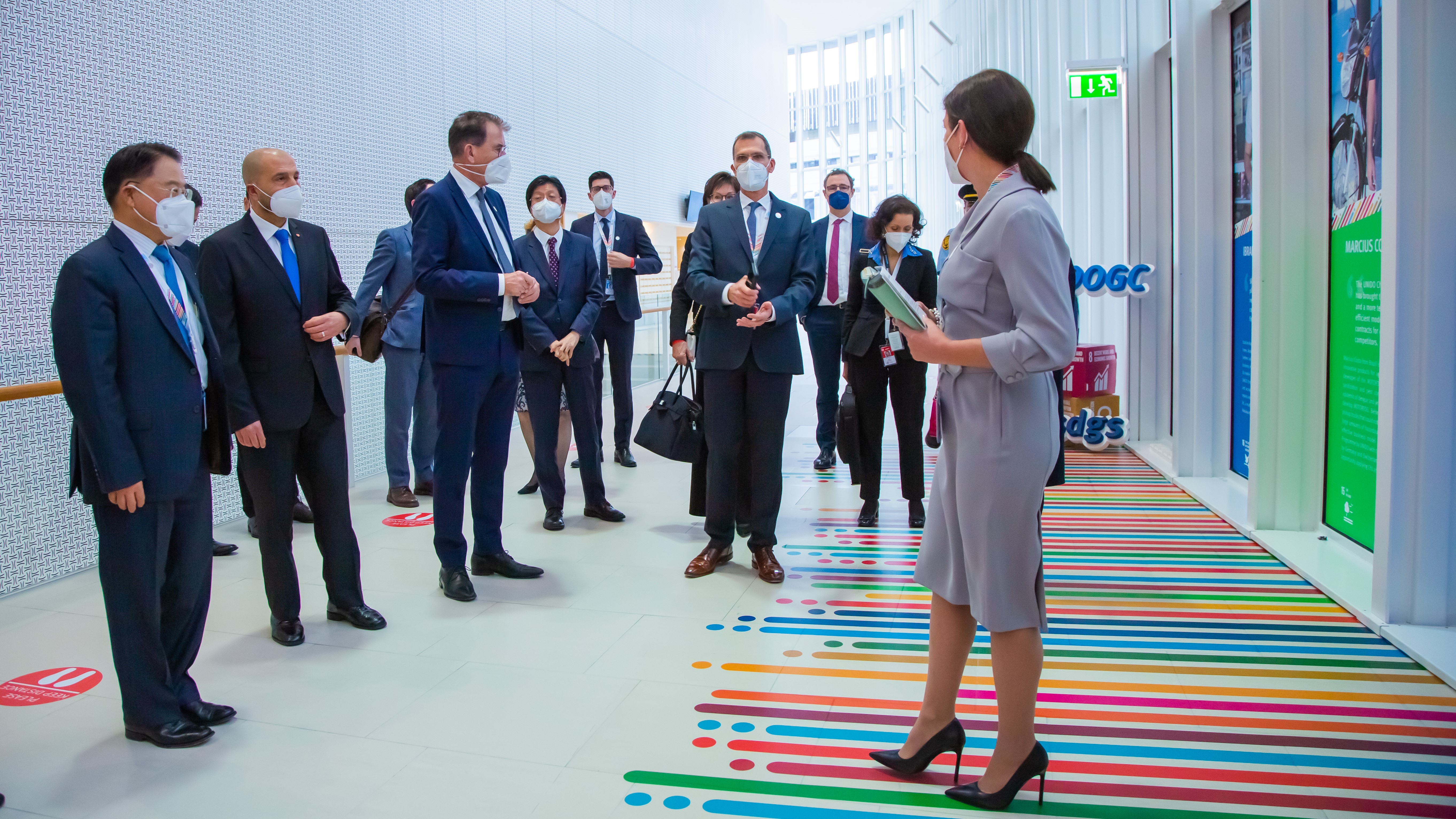
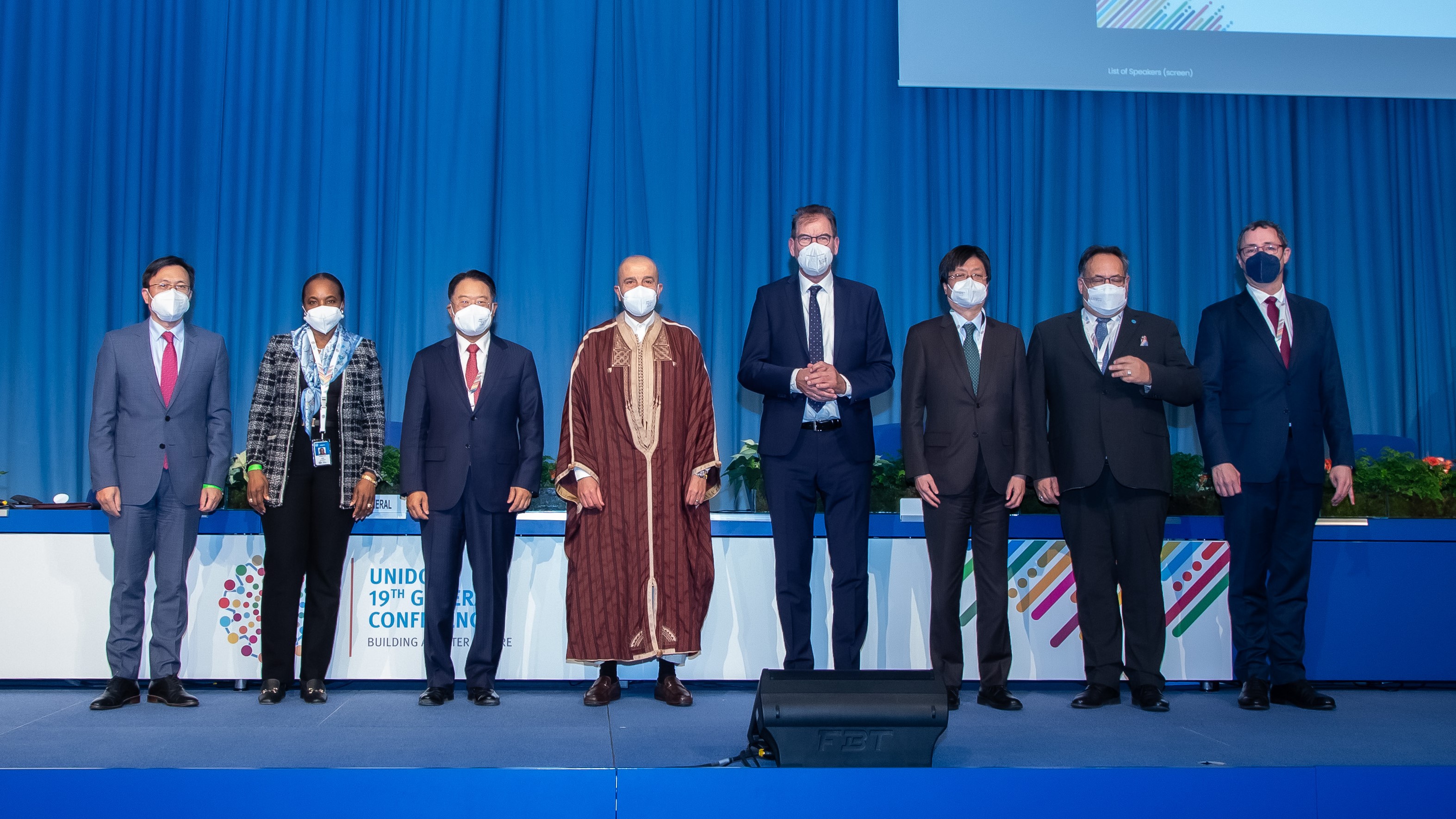
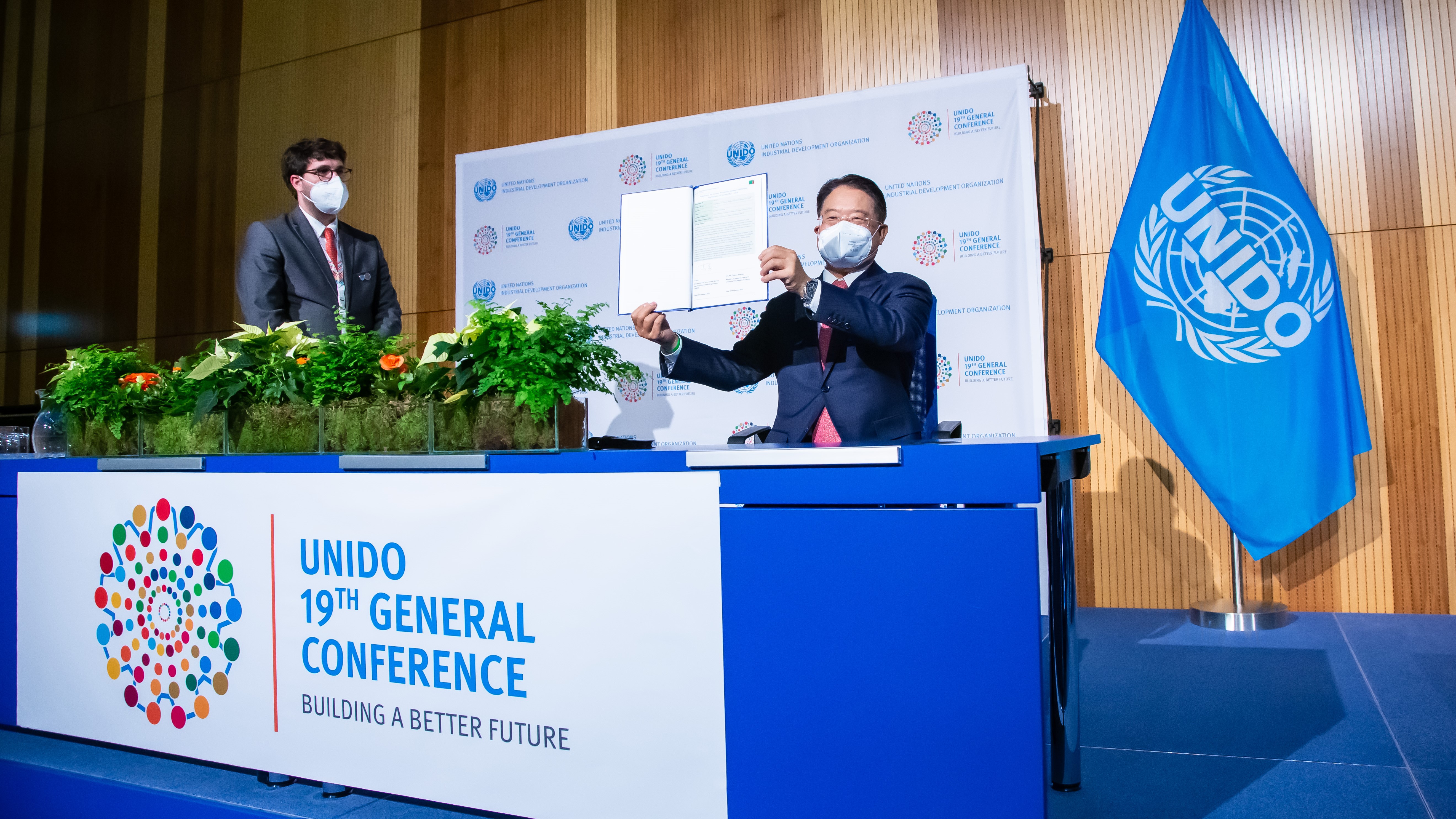
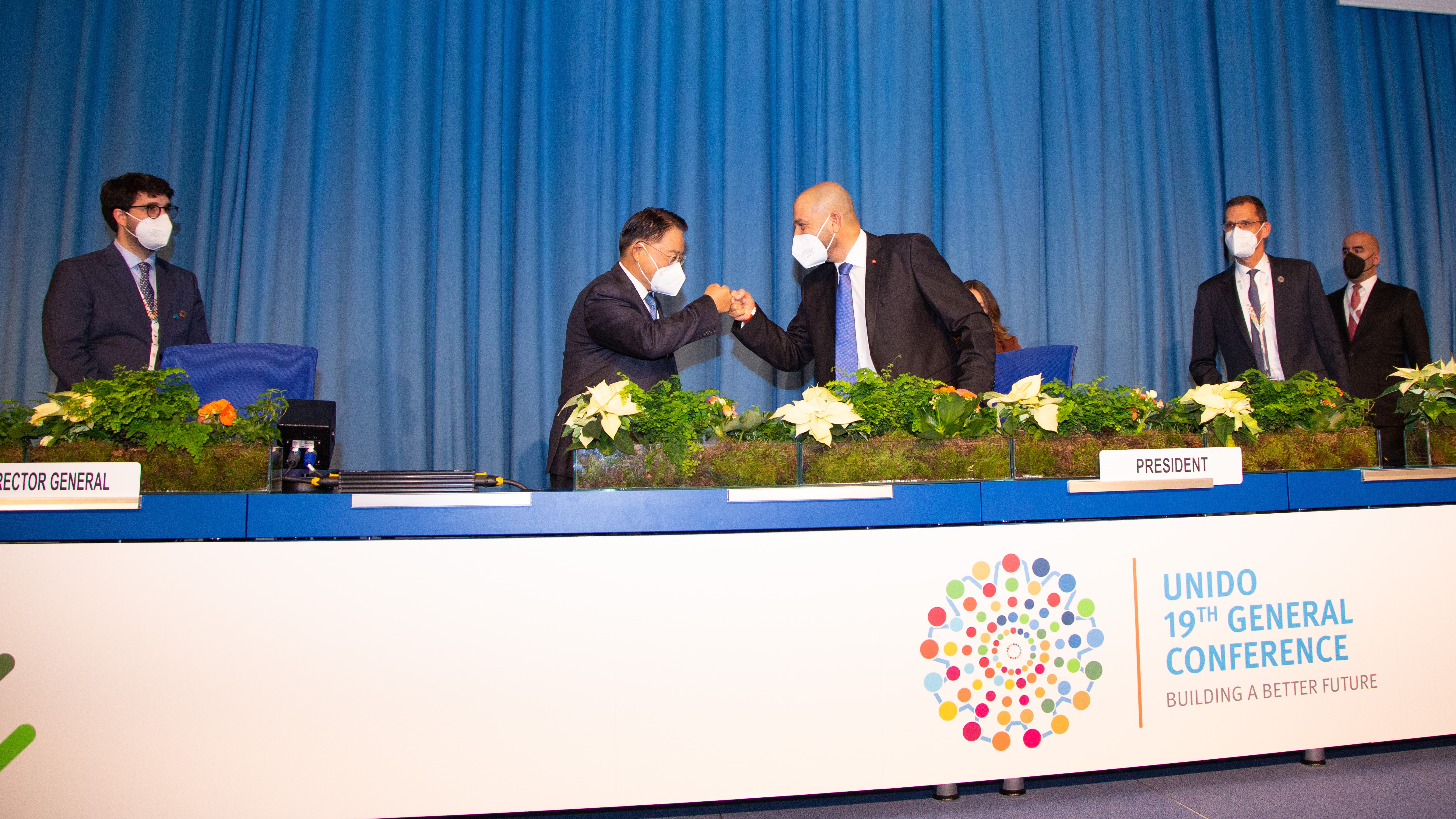
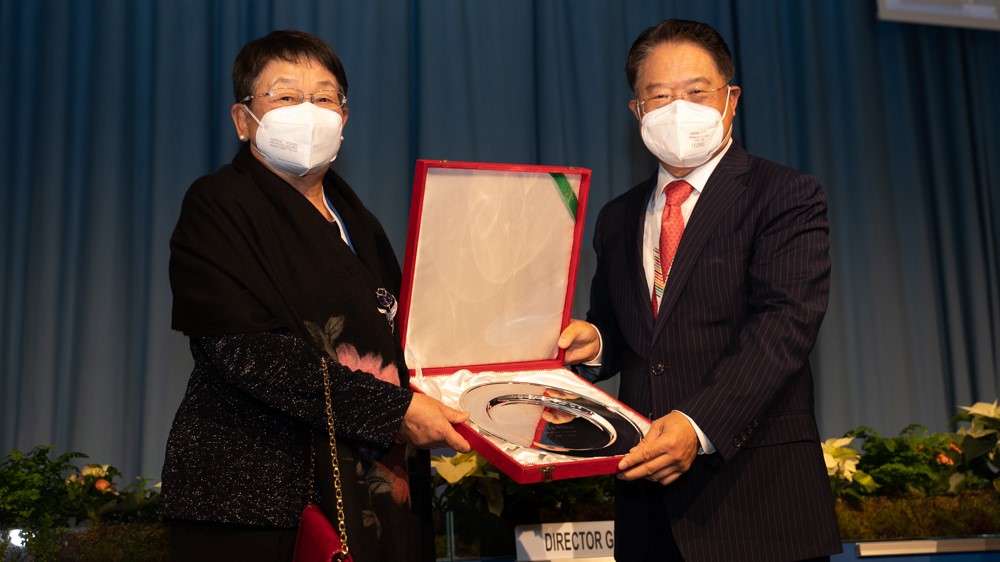
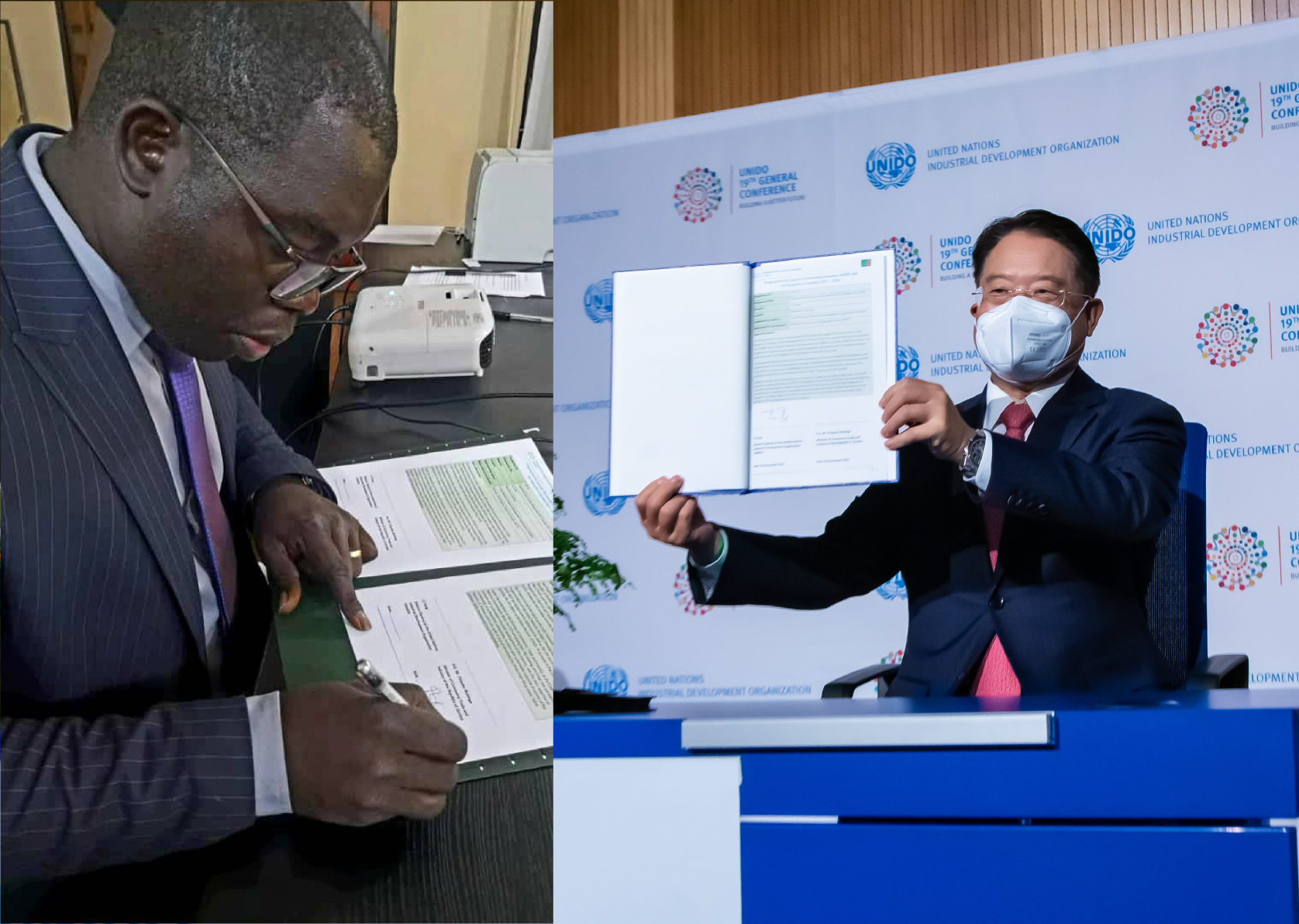
VIENNA, 29 November 2021 – The United Nations Industrial Development Organization (UNIDO) Director General, LI Yong, and Zambia's Minister of Commerce, Trade and Industry, Chipoka Mulenga, have signed a five-year Programme for Country Partnership (PCP) on the occasion of the Eighth Forum on Inclusive and Sustainable Industrial Development (ISID) during the 19th session of the UNIDO General Conference.
Under the leadership of the Government of Zambia, the PCP will strengthen existing- and forge new partnerships for the inclusive and sustainable industrial development of Zambia, with the main objective of contributing to a diversified, competitive, inclusive and sustainable industrial economy. As part of its commitment to the programme, the Government of Zambia has pledged more than US$20m as co-financing for the implementation of the PCP objectives, which is expected to leverage additional resources from development partners. Notably, the PCP and its pertinent initiatives have already received support from the Governments of China, Sweden, Finland and Japan, as well as the European Union, among other relevant partners.
During his intervention at the Forum, Mulenga underscored his Ministry’s commitment to collaborating with UNIDO, highlighting that “the PCP comes at a timely moment to accelerate Zambia’s development goals and enhance the country’s industrial productivity, notably by developing human capital and enhancing value addition in different sectors.” Moreover”, he added, “industrial sectors play an important role in the economic transformation agenda to foster greater inclusion and poverty reduction.,”
Marking the end of the programming phase initiated in 2019, the launch of the PCP will heighten the long-standing partnership between UNIDO and Zambia.
UNIDO’s Li affirmed that “the finalization of the programming phase constitutes an important milestone and I commend the Government of Zambia for its vision and leadership throughout the process,” adding, “UNIDO, through the PCP, will continue to support Zambia, as we progress to the next stage of our collaboration.”
Based on the results of the PCP Industrial Diagnostic Study conducted by UNIDO, and in line with the Government’s priorities, the PCP identifies three focus areas:
(i) Fostering manufacturing industries and value addition on primary commodities;
(ii) Industrial skills development;
(iii) Improving the policy environment.
Women and youth empowerment and COVID-19 recovery are cross-cutting themes to be addressed throughout the PCP implementation.
In line with the three focus areas, the multi-stakeholder partnerships promoted under the PCP will largely focus on value chain development, investment promotion for economic diversification, sustainable production processes, green industry, and clean and affordable energy, as well as evidence-based industrial policymaking and governance.
The Programme is built on established national industrial development priorities. The PCP will support the Government of Zambia's efforts in achieving its industrial development goals set forth in Vision 2030, building on the Seventh National Development Plan (7NDP) and aiming to contribute to the implementation of the Eighth National Development Plan (8NDP), currently under formulation, as well as the National Industrial Policy 2018.
The newly signed partnership will also serve as the main framework of action for UNIDO’s contribution to the implementation of the United Nations Strategic Development Partnership Framework (UNSDPF) 2016-2022 for Zambia and its Addendum. It will also steer UNIDO’s activities towards the upcoming United Nations Sustainable Development Country Framework (UNSDCF) for Zambia, as well as the UN Socio-Economic Response Plan guiding the UN efforts to facilitate the post-COVID-19 recovery in the country.
In order to guide the PCP implementation, the Government of Zambia will establish the PCP National Coordination Body, chaired by the Ministry of Commerce, Trade and Industry, and vice-chaired by the Ministry of Finance and National Planning. It will include representatives from all PCP-related ministries and national authorities, the private sector and academia, as well as the UN Resident Coordinator.
For more information, contact: Manuel Mattiat, Programme Officer, UNIDO
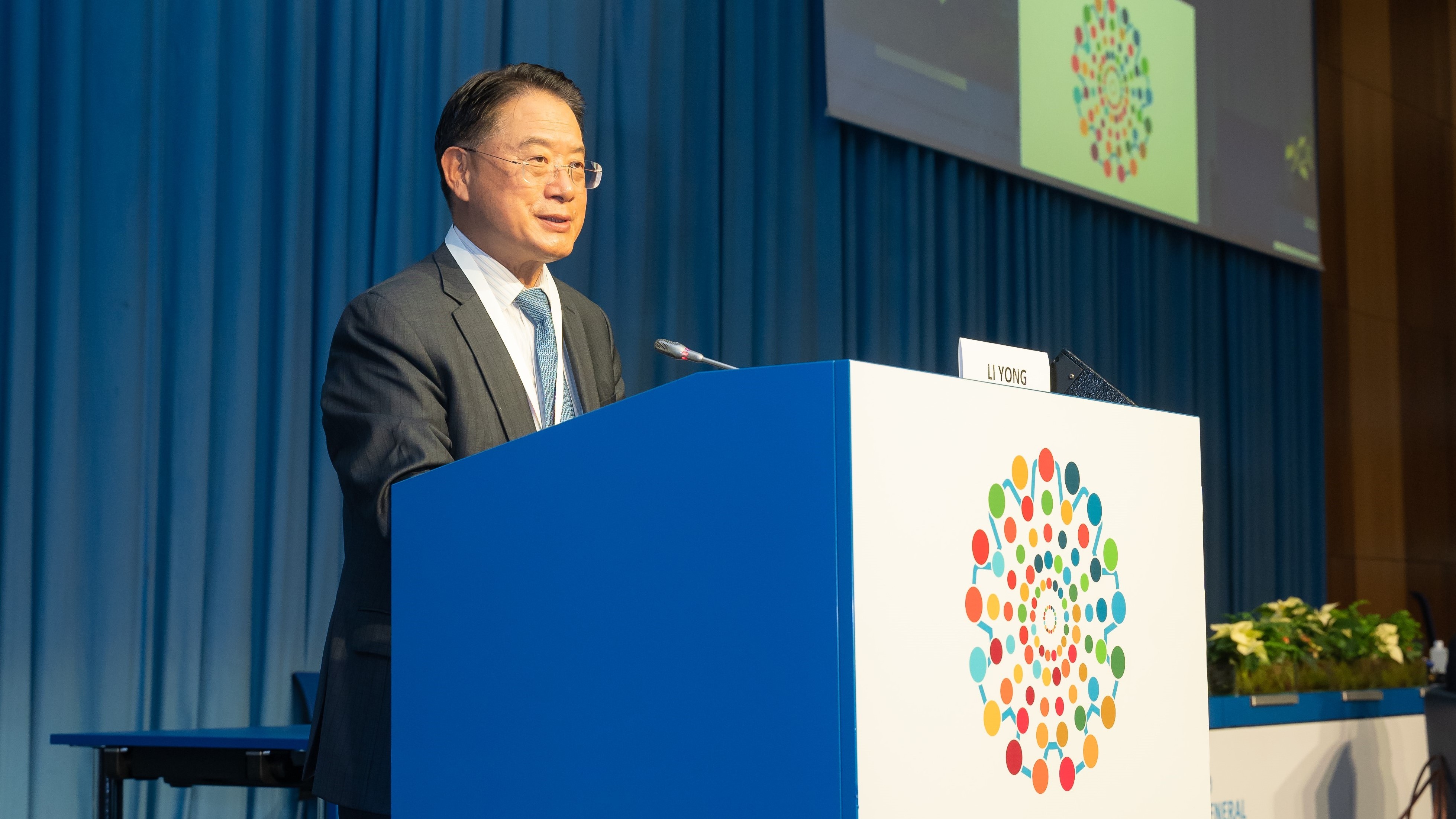
VIENNA, 30 November 2021 – Representatives of donor governments and partner institutions of the United Nations Industrial Development Organization (UNIDO) at the Organization’s fifth Donor Meeting agreed that innovative partnerships and programmatic approaches can provide more flexibility, efficiency, transparency and accountability in delivering development impact.
Held within the framework of the nineteenth session of the General Conference of UNIDO and under the theme “Scaling up impact through innovative partnerships”, the meeting provided insight into how Member States and development partners work together with UNIDO to scale up impact and efficiency to achieve common development objectives, recover from the COVID-19 pandemic and build a more resilient future through inclusive and sustainable industrial development. With the participation of representatives of the European Union, Italy, Japan, Sweden and Switzerland, the event showcased various initiatives exemplifying UNIDO’s approach.
In his opening statement, UNIDO Director General LI Yong said, “Only through inclusive multilateralism that draws on the private sector, local and regional authorities, civil society and academia, as well as strong multilateral institutions, can we achieve sustainable and inclusive solutions to the current challenges,” adding, “The Organization works closely with Member States and funding partners to further its transition towards more programmatic, impact-driven approaches, to foster transformational change and deliver development impact towards the SDGs.”
Martin Saladin, Head of Operations at the Swiss State Secretariat for Economic Affairs (SECO) joined the event to discuss the Global Quality and Standards Programme (GQSP) and the Global Eco-Industrial Parks Programme (GEIPP), which form part of the Switzerland-funded portfolio at UNIDO and aim to achieve system change through tailored, country-specific interventions.
“Global programmes are innovative approaches, combining national efforts and adding value through a global knowledge management component,” Saladin said, adding that such initiatives allow for the creations of synergies for increased efficiency and effectiveness, and the sharing of best practices and experiences between countries for the benefit of all stakeholders.
In presenting a regional approach to project design, Jessica Magnusson, Senior Advisor at the Swedish International Development Cooperation Agency (Sida) presented Sweden’s partnership with UNIDO through the Energy efficient lighting and appliances project in Southern and Eastern Africa.
“The regional economic communities and their respective regional sustainable energy centres are very important as they have the mandate for advancing standard harmonization efforts,” said Magnusson with regard to Sida and UNIDO’s promotion of standard-setting, adding that this also benefits the private sector and supports market creation.
“UNIDO is an important partner in this through their global network of regional sustainable energy centres,” Magnusson emphasized.
The fifth Donor Meeting is available from 5:35:00 to 6:59:00.
Maintaining the regional perspective and focus on environmental protection, Stefano Dotto, Head of Sector for Climate Change, Energy, Environment and Transport at the European Commission, joined the event to discuss the SwitchMed programme. This regional flagship initiative of UNIDO, which is implemented in eight South Mediterranean countries, stimulates the creation of new, greater business opportunities and decent employment, while reducing the environmental footprint of economic activities in the region.
“Environment and climate change in the Mediterranean region requires that sustainable consumption and production become the norm so that we no longer make a difference between ‘economy’ and ‘sustainable economy’, and bring about a triple win: for the environment, for business and for consumers,” Dotto said.
With the second phase of SwitchMed, the European Union and UNIDO are working to help industries become more resource and energy-efficient, increase productivity, reduce pollution and provide access to international markets with good quality products.
Norio Maruyama, Ambassador of Japan to South Africa, provided insights on the country’s work with UNIDO to tackle another global environmental threat, that of marine plastic litter. This joint effort was highlighted through the presentation of a project to support the transition from conventional plastics to more environmentally sustainable alternatives in South Africa.
“This has been another successful example of cooperation between Japan and UNIDO in Africa and can enrich the regional and global discussion on circular economy,” Ambassador Maruyama said. “Together, we can promote the results and lessons learned from this project and provide inspiration to many to advance innovative solutions to protect our environment.”
The meeting further explored the advantages of partnering with the private sector, presenting a joint initiative between UNIDO, the Italian Agency for Development Cooperation and Illycaffè to improve the inclusive and sustainable development of the coffee value chain in Mozambique.
“We joined with UNIDO because of their capacity to link with the private sector. We particularly recognize the valuable technical support from Illy in this project,” said Alberto Giani, Team Leader for Agriculture, Food Security and Rural Development at the Italian Agency for Development Cooperation’s office in Maputo, Mozambique.
In concluding the event, Hiroshi Kuniyoshi, Deputy to the Director General of UNIDO, expressed confidence that the discussion “has provided inspiration for us to work more closely together through innovative resource mobilization approaches that can deliver transformational change and accelerate progress towards the achievement of the Sustainable Development Goals”.
Find out more about the fifth Donor Meeting here.
For further information, please contact:
Strategic Relations and Resource Mobilization Division
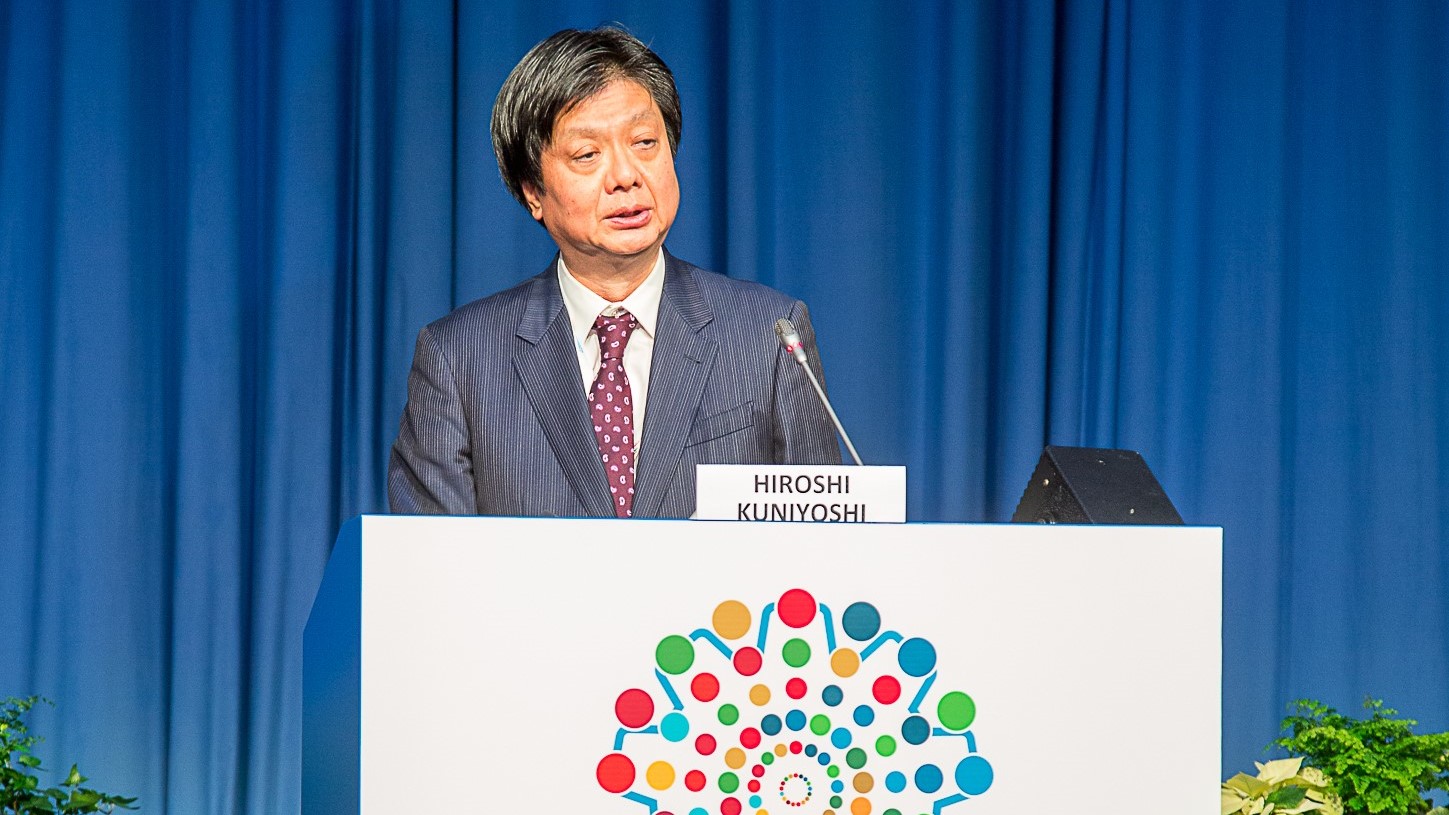
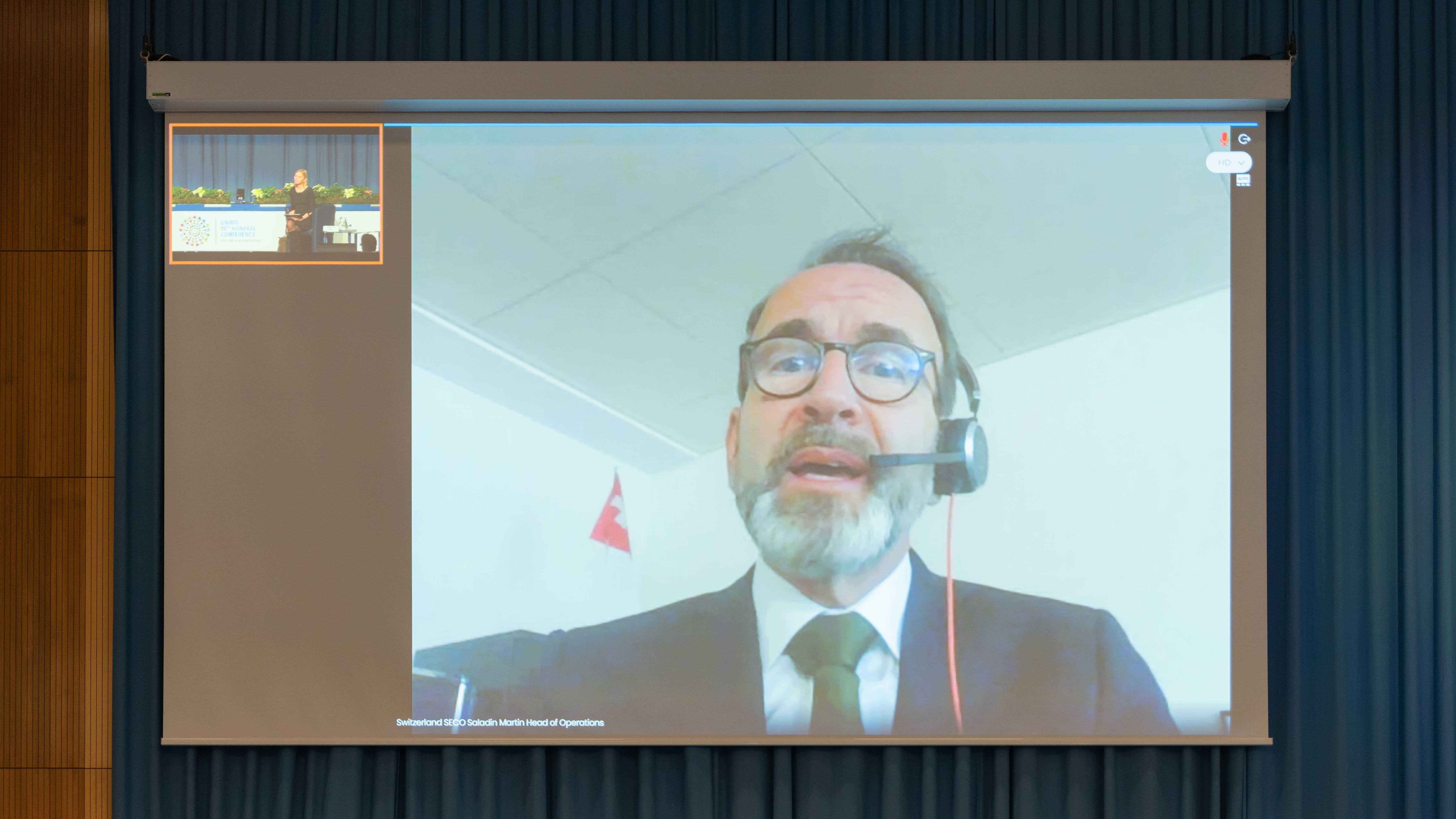
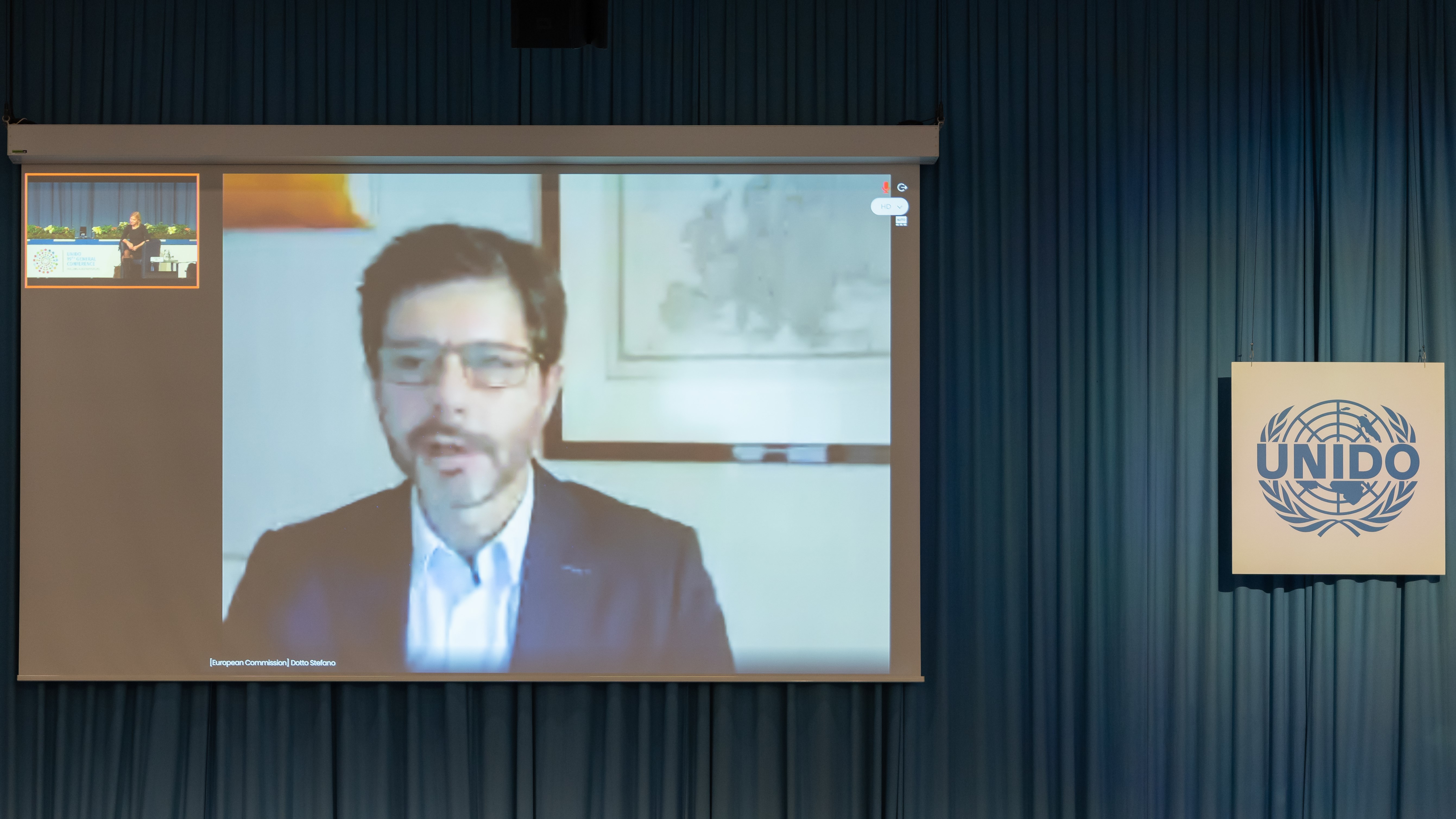
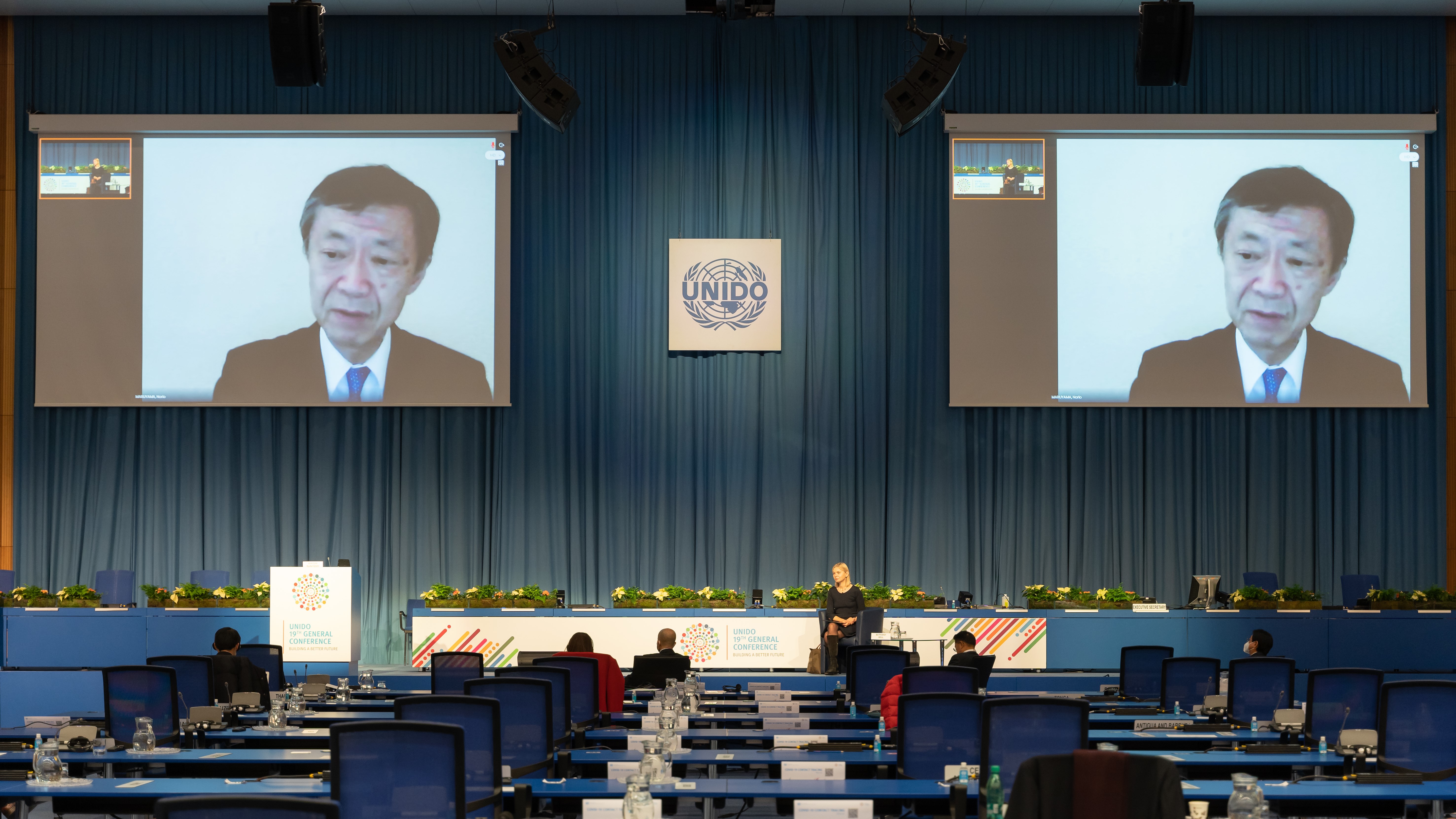
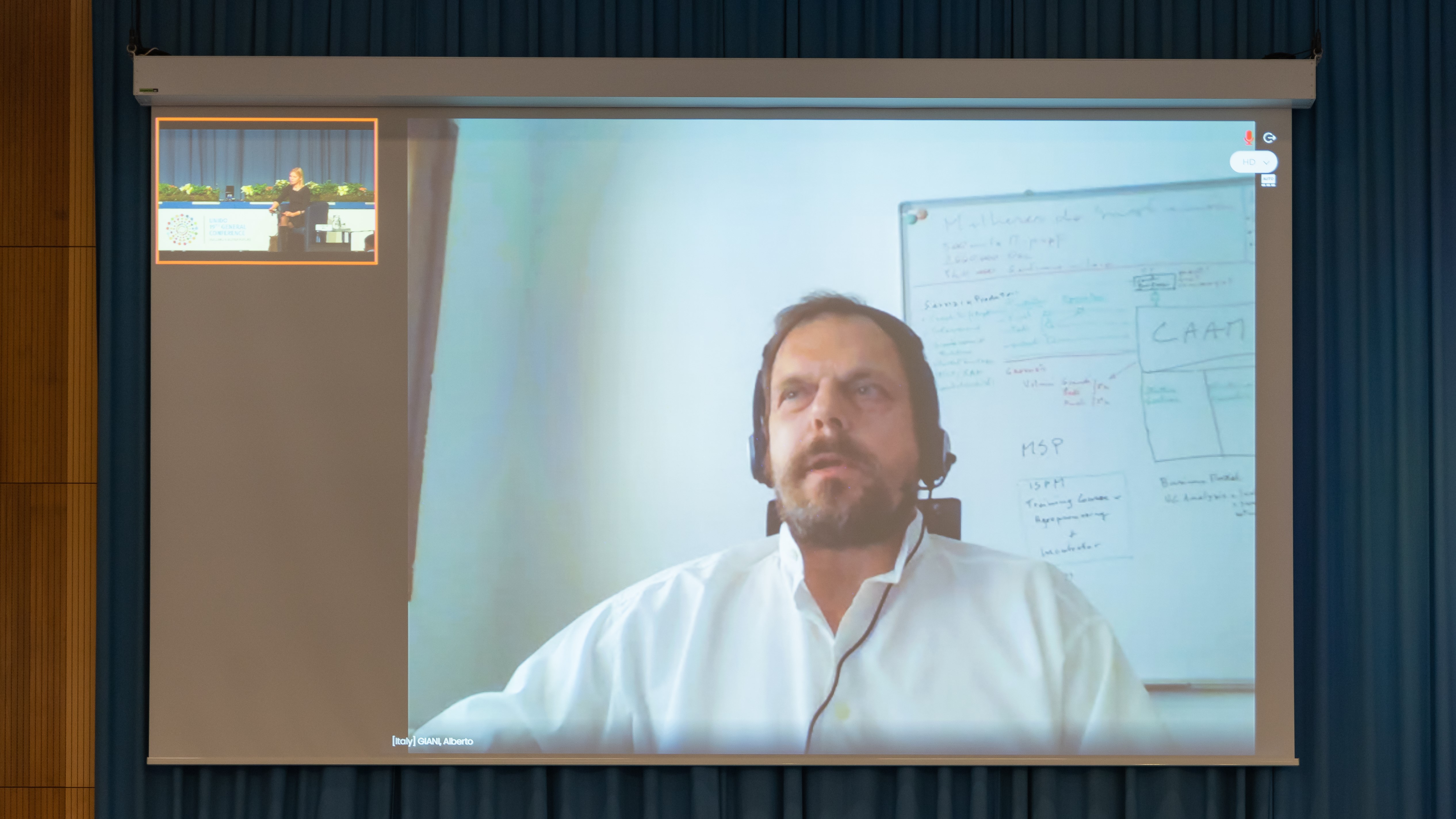
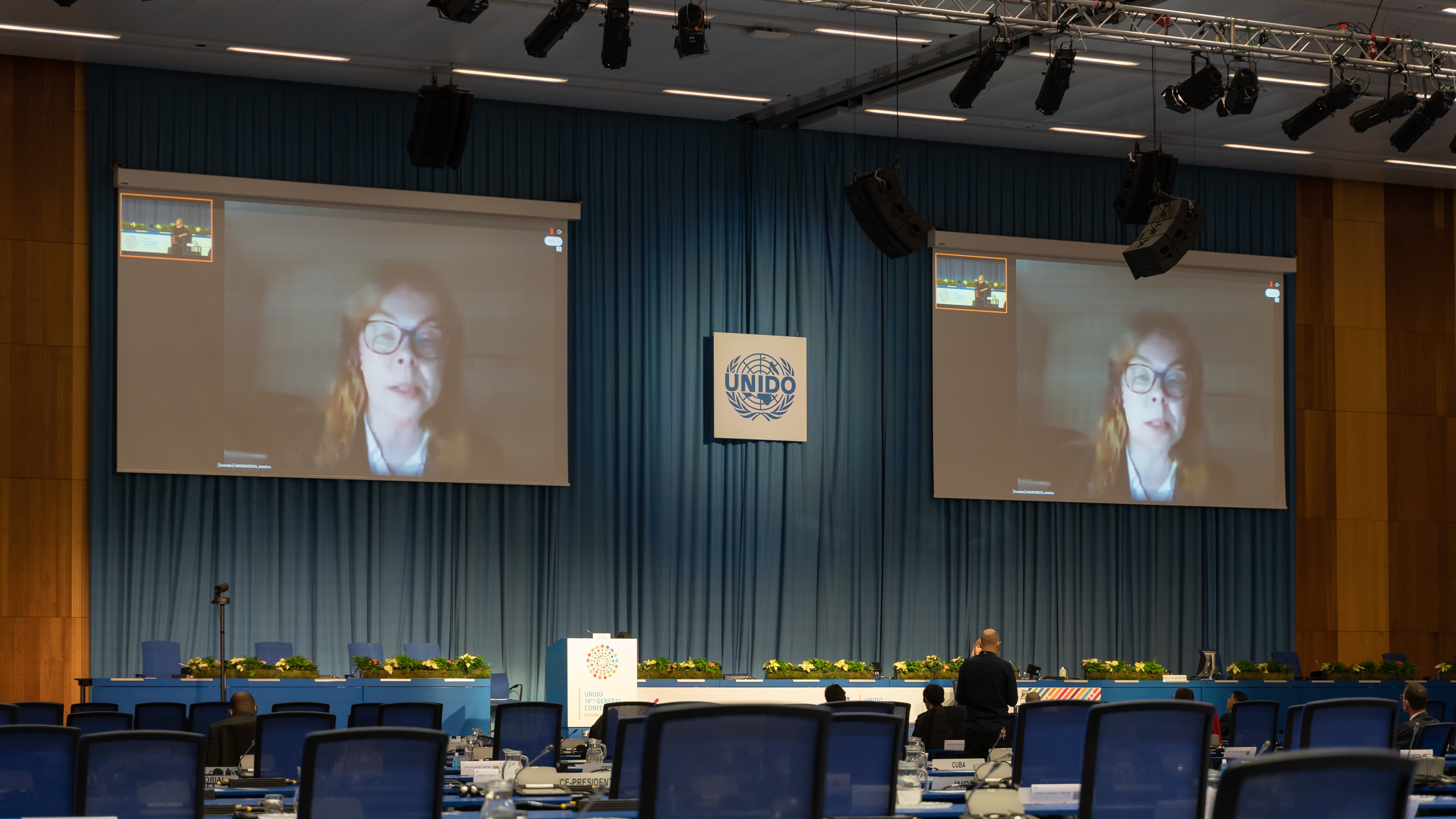
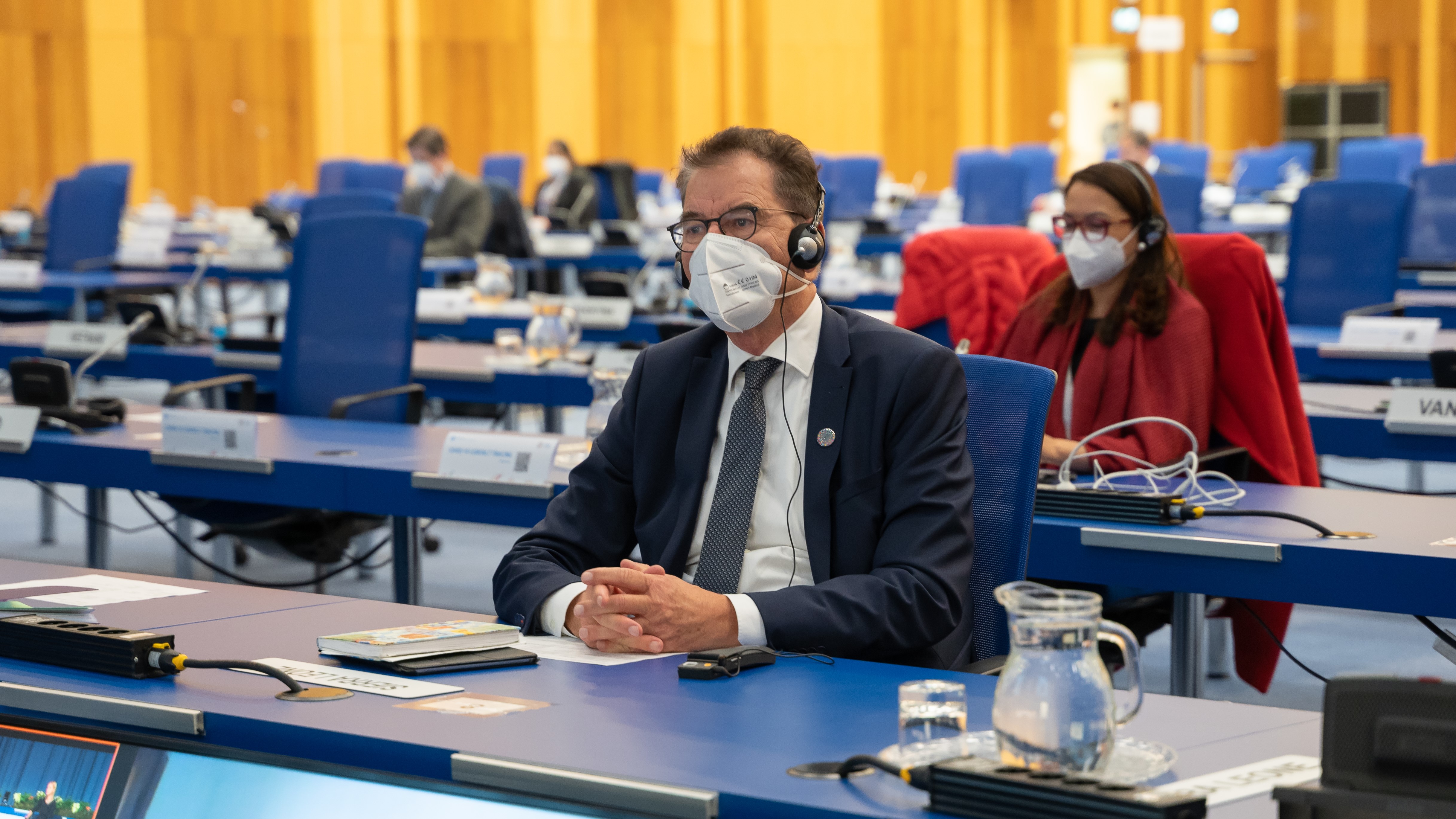
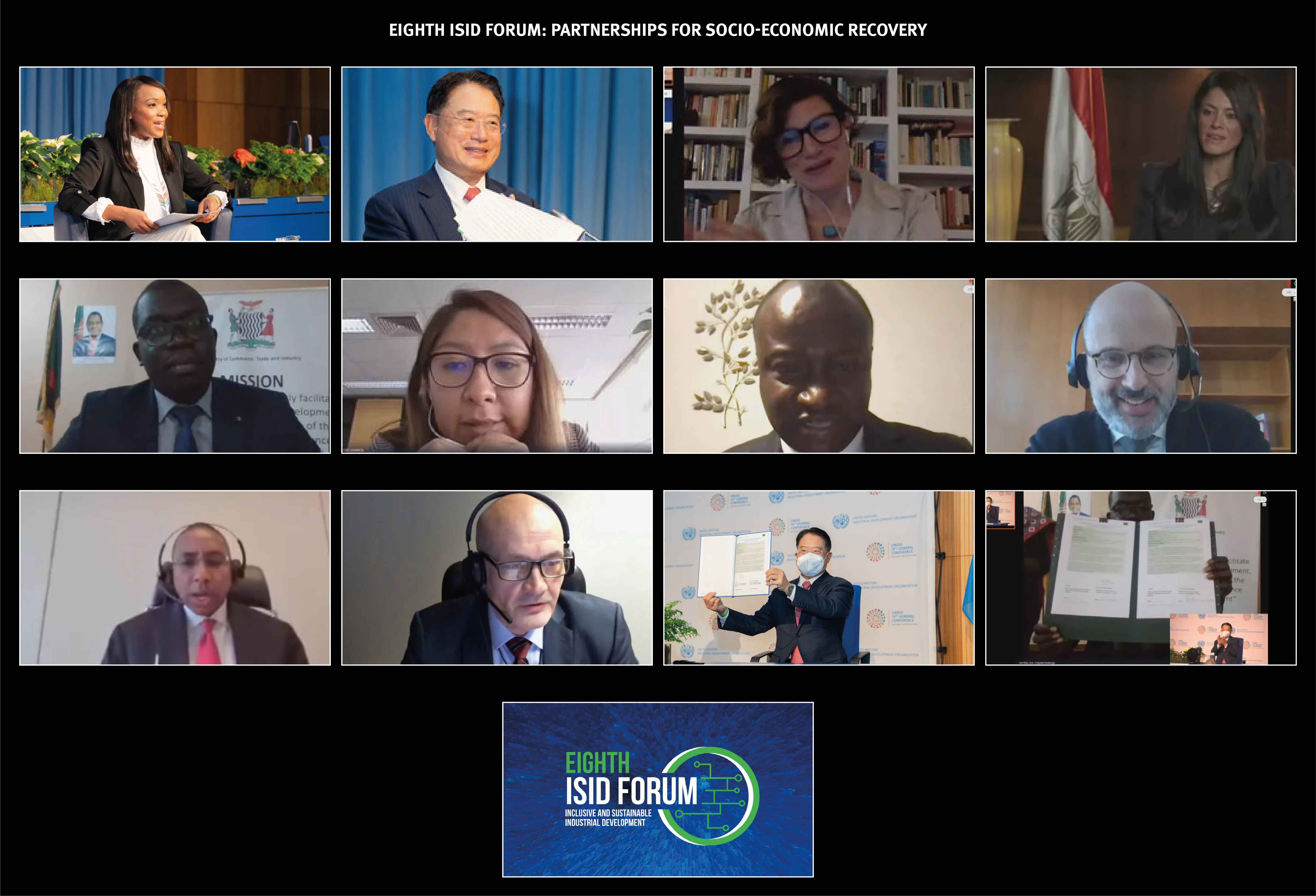
VIENNA, 29 November 2021 – The United Nations Industrial Development Organization (UNIDO) today held its Eighth Inclusive and Sustainable Industrial Development (ISID) Forum. The Forum discussed how multi-stakeholder approaches, such as the UNIDO Programme for Country Partnership (PCP), can support socio-economic recovery and countries’ efforts to build a better future, in the context of the United Nations’ Decade of Action.
In his opening remarks, UNIDO Director General LI Yong said, “What we have seen, more than ever, in this interconnected world, is that no single country or entity can address the pandemic on its own, let alone reboot progress towards our shared Sustainable Development Goals (SDGs). What we face together, we must solve together,” adding, “UNIDO will continue to support multilateral and country efforts to build back better through integrated approaches, combining our technical expertise, policy advice, normative support, and convening function, including through our partnership-centered PCPs.”
There are currently 12 PCP countries − Cambodia, Côte d’Ivoire, Ethiopia, Egypt, Kyrgyzstan, Morocco, Nigeria, Peru, Rwanda, Senegal, Tanzania and Zambia − at different stages of development and implementation.
In her keynote speech at the ISID Forum, Mariana Mazzucato, Professor at the University College London (UCL) and Founding Director of the UCL Institute for Innovation and Public Purpose, emphasized, “We need governments to take a leading role in building, coordinating and governing horizontal, cross-sectoral partnerships.” She continued, “Whether it is climate change or the digital divide, none of these areas can be solved in isolation. We need every sector to be part of the solution when we think of the future of industrial policy and recovery.”
High-level government representatives presented their insights and first-hand experiences with the UNIDO PCP approach. Rania Al-Mashat, Egypt’s Minister of International Cooperation, said, “The PCP is a very important framework for the Government of Egypt; it shows country ownership, collaboration and coordination, especially through its governance, led by the President and supported by the Prime Minister, bringing together different ministries and other international institutions to create complementarity.”
Chipoka Mulenga, Zambia’s Minister of Commerce, Trade and Industry, emphasized his government’s national commitment to the PCP as it prepares to launch the implementation of the new programme.
As part of the closing segment of the ISID Forum, the Minister and Director General Li officially signed the finalized PCP Zambia programme document, marking an important milestone.
Government representatives from Senegal and Peru talked about their priority initiatives, from industrial policy to circular economy and the establishment of industrial zones and agro-poles, noting the partnerships and resources mobilized through the PCP over the years. Ethiopia and Cambodia also delivered messages of support to UNIDO’s PCP approach at the occasion of the ISID Forum.
Development partners and financial institutions shared their experiences and views, highlighting the essence of multi-stakeholder partnerships for socio-economic recovery and progress towards the SDGs.
Robert Piper, Assistant Secretary General for Development Coordination at the United Nations, spoke about the PCP’s contribution to UN system-wide efforts at the country-level in support of governments and their path towards the 2030 Agenda, notably in the context of the UN reform. “The PCP responds to the thirst for more emphasis on economic transformation, for a whole-of-society and multi-stakeholder approach, and it is innovative, as it mobilizes funds from different sources and promotes a more integrated model of development, a cross-cutting effort. It also draws on all assets of the UN family.”
Representing the African Development Bank, Abdu Mukhtar, noted the multi-dimension impacts of COVID-19, but also emphasized the growth opportunities when talking about the Bank’s priorities, such as the development of industrial value chains, the pharmaceutical sector and sustainable infrastructure development. On the PCP, he said, “There is clear alignment between the Bank’s industrialization strategy and the PCP approach. The AfDB benefits from UNIDO’s expertise in industrial policy design and large-scale industrial projects, such as industrial parks and agro-poles. We are active partners in the PCPs of Egypt, Ethiopia, Morocco, Tanzania and Senegal.”
Antti Karhunen from the European Commission underlined the long-standing partnership between the European Union and UNIDO, including in PCP countries. “For us, the PCP is a very valuable tool that can help leverage the complementary resources and initiatives of various partners, including from the private sector.” He also presented some of the EU’s initiatives in support of socio-economic recovery, such as Investing in Young Businesses in Africa and support to local manufacturing, notably in the health sector.
The Forum was moderated by Folly Bah Thibault, Principal Presenter, Al Jazeera English, and held in a hybrid format as part of the nineteenth session of the UNIDO General Conference.
Find out more about the event’s speakers and panellists on the webpage here.
For more information on the Programme for Country Partnership, please contact:
Jaime Moll de Alba
Director
Department of Programme and Partnership Coordination
Related press release – UNIDO and the Government of the Republic of Zambia sign the Programme for Country Partnership
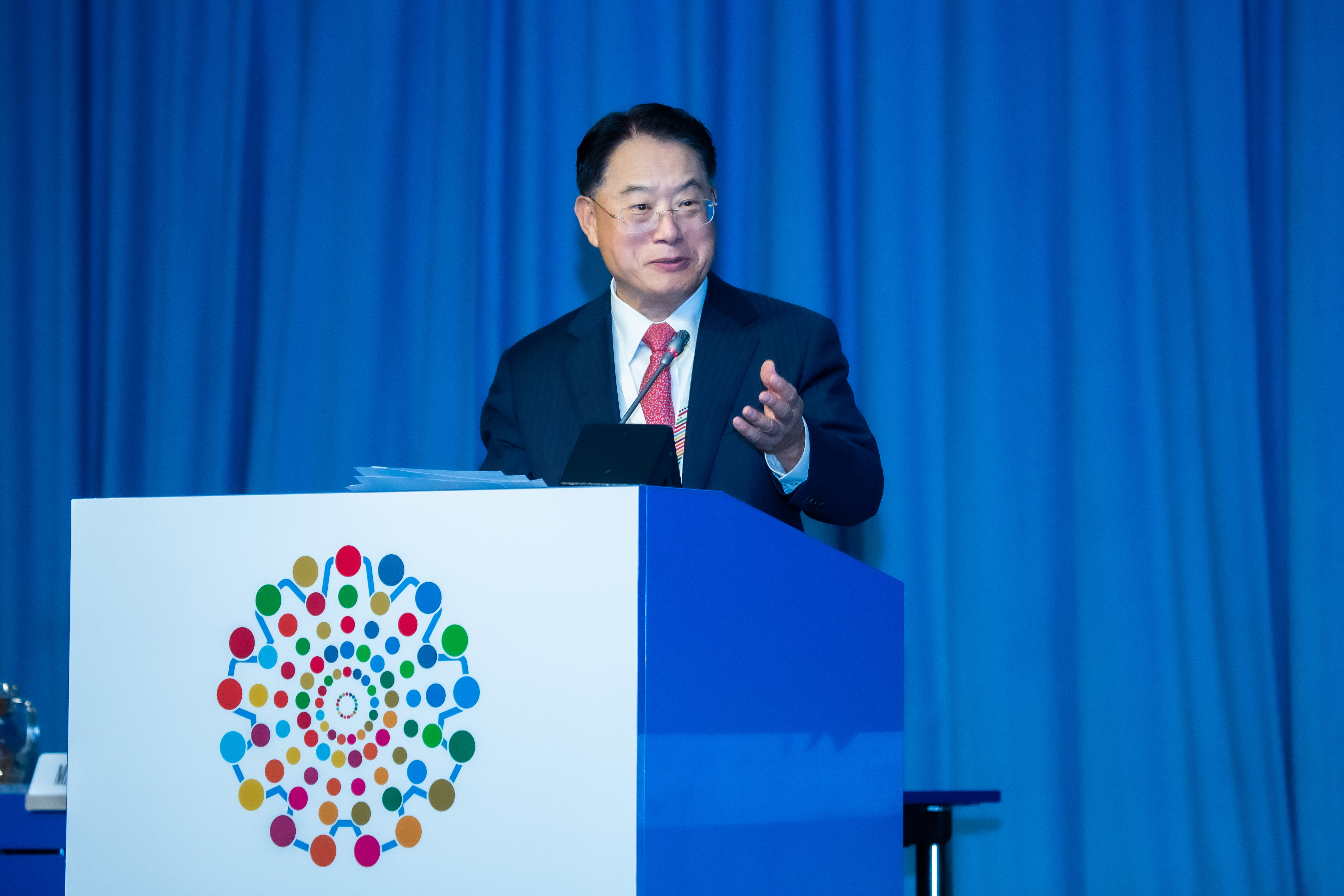
VIENNA, 29 November 2021 – The 19th session of the General Conference of the United Nations Industrial Development Organization (UNIDO) opened today in Vienna under the theme “Building a Better Future.”
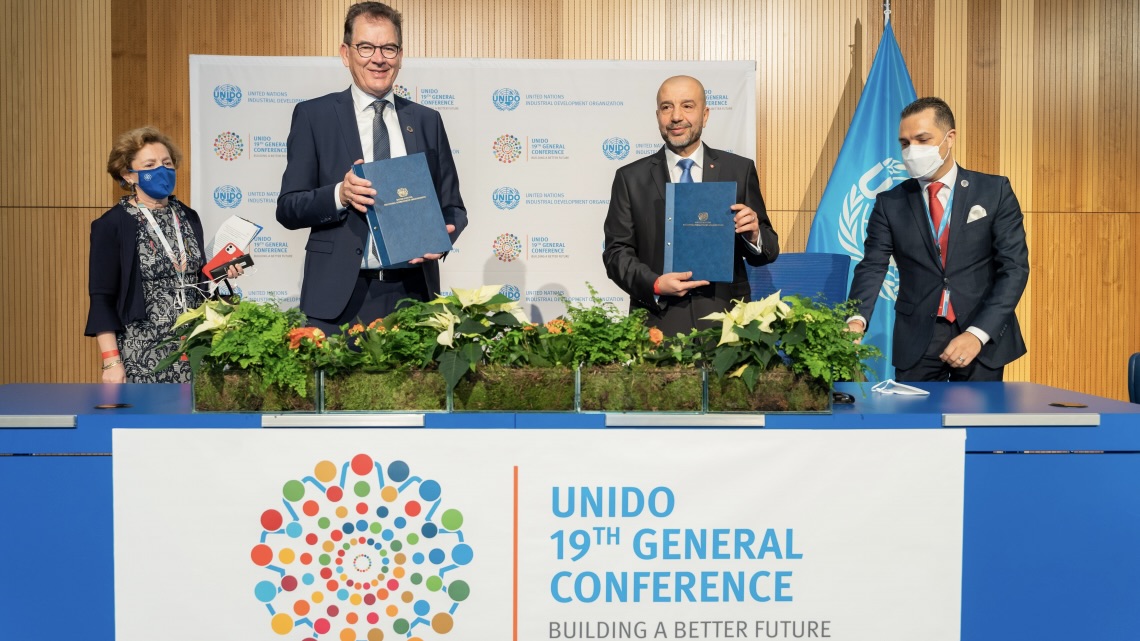
From left to right: Gerd Müller, UNIDO Director General-designate; and President of the General Conference, Mohamed Mezghani, Ambassador Extraordinary and Plenipotentiary, Permanent Representative, Republic of Tunisia.
VIENNA, 30 November 2021 – Gerd Müller, Germany’s acting Federal Minister for Economic Cooperation and Development, is set to take office as the new Director General of the United Nations Industrial Development Organization (UNIDO).
Müller’s appointment for a four-year term was confirmed today by the UNIDO General Conference held in Vienna. Müller will succeed Li Yong, who has led the United Nations’ specialized agency driving inclusive and sustainable industrial development since 2013.
During his two terms in office, Li led the Organization through an important transition as its Member States renewed UNIDO’s mandate with the adoption of the 2013 Lima Declaration. The 2013 Lima Declaration highlighted the concept and the vision of inclusive and sustainable industrial development, which was embedded in the 2030 Agenda for Sustainable Development as SDG 9, “Build resilient infrastructure, promote inclusive and sustainable industrialization and foster innovation”.
Li subsequently launched the Programme for Country Partnership, an innovative development model that builds synergies with ongoing government and partner interventions supporting industrial development and that leverages investment in selected priority sectors.
Müller has vowed to build on the successful work of his predecessor: “I want to thank Director General Li and the UNIDO staff for the successful work over the last eight years”. He wants to further strengthen UNIDO by creating a global platform for technology transfer, know-how and digitalization. The platform, he says, “can foster green skills and technologies, expand the use of renewable energies and open up fair access to global markets and value chains - in close collaboration with other UN agencies, governments, development banks, companies and investors.”
He wants UNIDO to play its part in the UN Common Agenda to help its Member States to achieve the 2030 Agenda for Sustainable Development, the Paris Agreement on climate action, the Convention on Biological Diversity, and the Beijing Declaration on Gender Equality.
Müller said, “We are currently facing global challenges that affect us all: climate change, the COVID-19 pandemic and increasing hunger. To fight inequality, to build back better and to promote a green recovery, we must work together and we must act now!”
He emphasized his aim is “to establish UNIDO as a leading multilateral player in fostering green, resilient, inclusive and sustainable industrial development through a renewed partnership between industrialized countries and developing countries. And with a stronger commitment from the industrialized countries”.
As Federal Minister, Müller strengthened the Ministry for Economic Cooperation and Development by doubling the development cooperation budget to more than 12 billion euros and by creating special initiatives on “World without hunger”, “refugees and migration” and “training and jobs for the youth” - in cooperation with private corporations, especially in Africa (Compact with Africa, Marshall Plan with Africa).
With Müller’s COVID-19 Emergency Programme of four billion euros, Germany mounted an immediate and comprehensive response to support least developed countries and middle-income countries in coping with the social, economic and health consequences of the pandemic.
Read this news item in Arabic, Chinese, French, German, Russian and Spanish.
Video material for media is accessible here; additional pictures can be accessed here. Copyright: ©UNIDO.
More information about LI Yong is available here.
More information about Gerd Müller is available here.
Details about the UNIDO’s General Conference can be found here.
For further information, please contact:
advocacy@unido.org
